Indigenous Persons with Disabilities Global Network (IPWDGN)
Over 1 billion people, or approximately 15% of the world’s population, are persons with disabilities.[1] Applying this percentage to the
...Over 1 billion people, or approximately 15% of the world’s population, are persons with disabilities.[1] Applying this percentage to the
...The UN Food Systems Summit (FSS) was intended to provide an historic opportunity to empower all people to leverage the power of food systems to drive the world’s recovery from the COVID-19 pandemic and get us back on track to achieve all 17
The Indigenous Peoples’ Forum at IFAD was established in 2011 as a permanent process of consultation and dialogue between representatives of Indigenous Peoples’ institutions and organizations, IFAD and governments. The global meeting of the Forum convenes every second February in conjunction
...Indigenous Peoples have always been “data warriors”.[1] Their ancient traditions recorded and protected information and knowledge through art,
...The European Union (EU) is a political and economic union of 27 Member States. Its legislative and executive powers are divided between the EU main institutions: the European Parliament (co-legislative authority), the Council of the European Union (co-legislative and executive authority) and
...With their wisdom, energy and empowerment, Indigenous women are agents of change both in their own lives, as Indigenous women, and in the lives of their peoples, as members of their communities. They plant the seeds with which to defend and demand full exercise of their individual and
...The Convention on Biological Diversity is an international treaty under the United Nations (UN), adopted in 1992. The Convention has three objectives: to conserve biodiversity, to promote its sustainable use, and to ensure the equitable sharing of the benefits arising from its utilisation (Art.
...2021 marked a decade since the UN Guiding Principles on Business and Human Rights (GPs)[1] were approved by the
...The Association of Southeast Asian Nations (ASEAN) was established on 8 August 1967 with the signing of the ASEAN Declaration (Bangkok Declaration) by its founding Member States. The Member States of the Association are Brunei Darussalam, Cambodia, Indonesia, Lao PDR, Malaysia, Myanmar,
...The Arctic Council, established in 1996, is the leading intergovernmental forum promoting cooperation in the Arctic among the Arctic States, Arctic Indigenous Peoples and other Arctic inhabitants. The category of Permanent Participants (PP) is a unique feature of the Arctic Council. Six
...The African Commission on Human and Peoples’ Rights (ACHPR) was established in accordance with Article 30 of the African Charter on Human and Peoples’ Rights, with a mandate to promote and protect human and peoples’ rights on the continent. It was officially inaugurated on 2 November 1987 and
...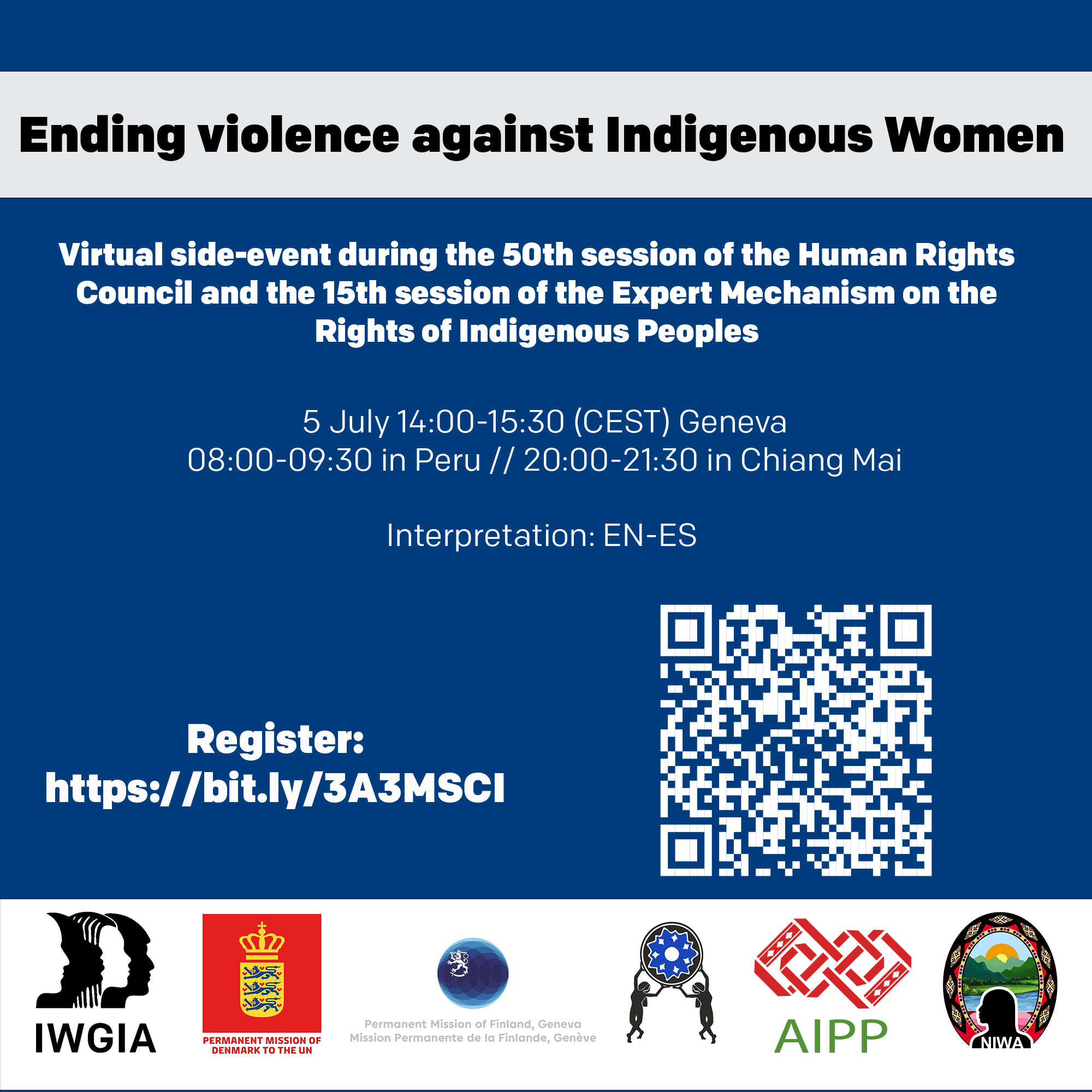
Virtual side-event during the...
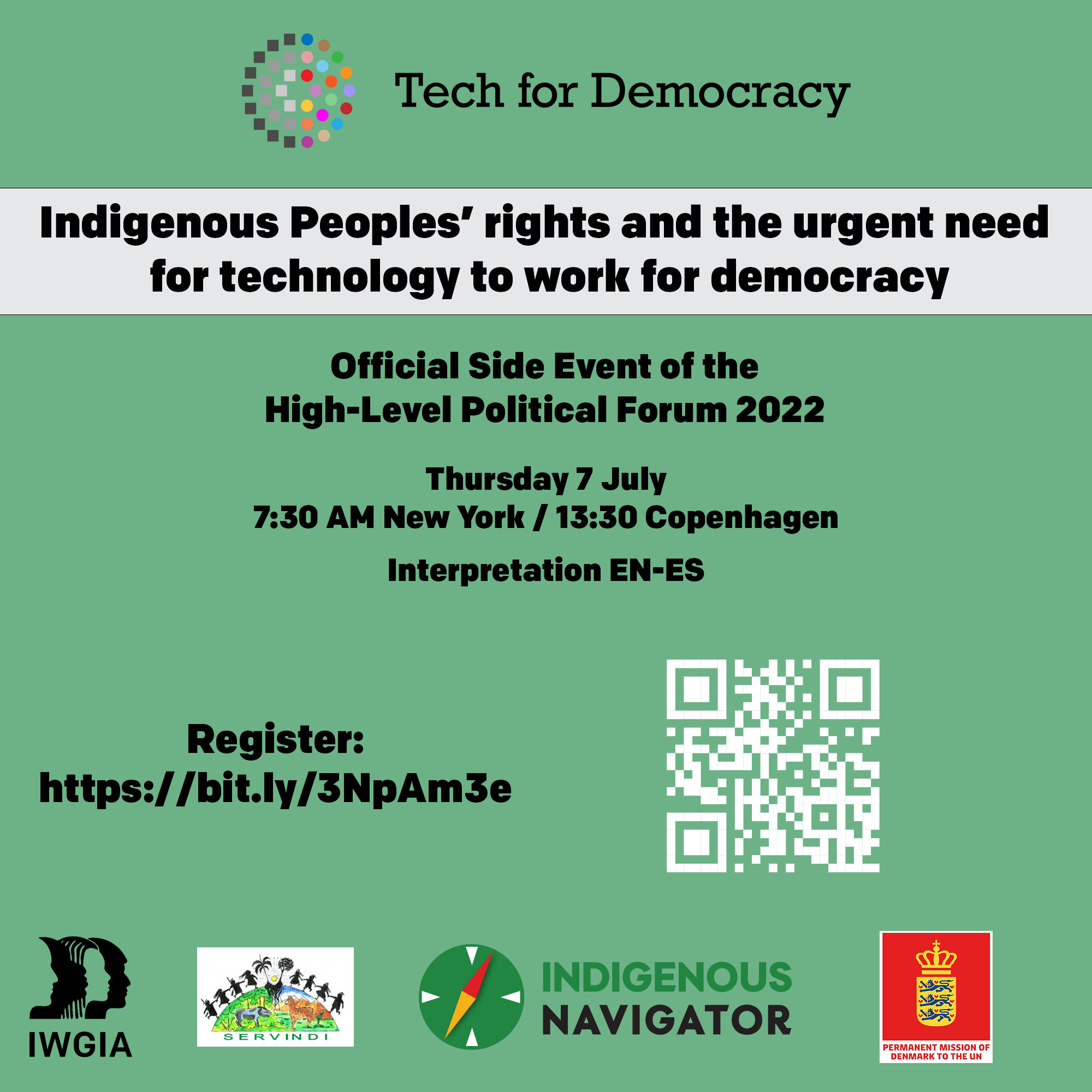
Offical Virtual Side-Event for HLPF 2022 Time / Date 7:30 AM NY / 13:30 Copenhagen: Thursday 7/July 2022
In the context of the High Level Political Forum on the Sustainable Development Goals (HLPF).
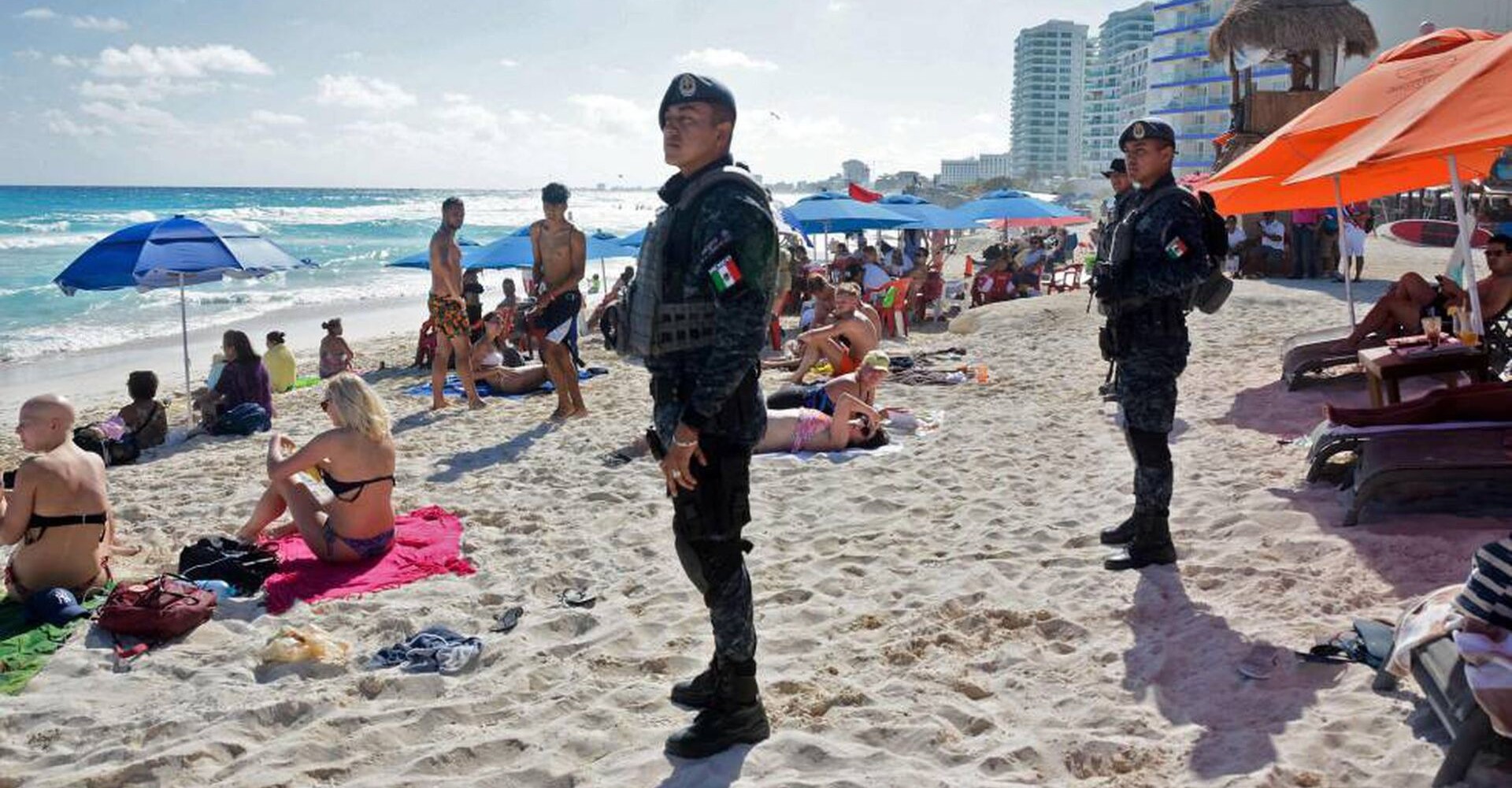
BY ANGEL SULUB FOR DEBATES INDÍGENAS
Before the advance of the presence of the State, the Maya Máasewáal nation lived in times of abundance.
...
Submission to the UN Special Rapporteur on the Rights of Indigenous Peoples for his report to the 77th Session of the UN General Assembly:
Indigenous Peoples’ Rights and UNESCO World Heritage Sites
Jointly submitted by:
International Work
...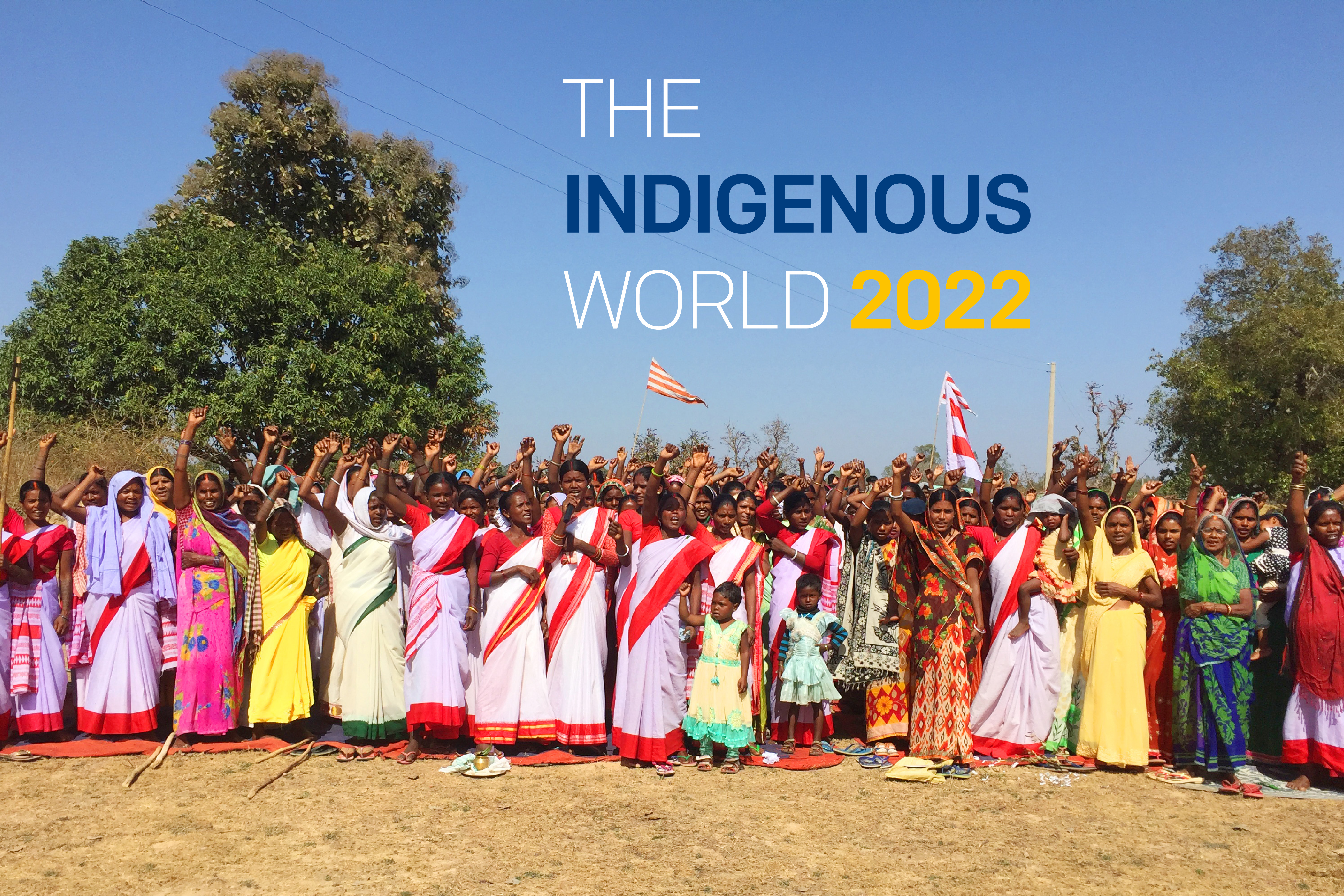
As the world grappled with the COVID-19 pandemic throughout 2021, Indigenous Peoples continued to respond to the virus in their traditional and innovative ways while also contending with the daily discrimination they continuously face.
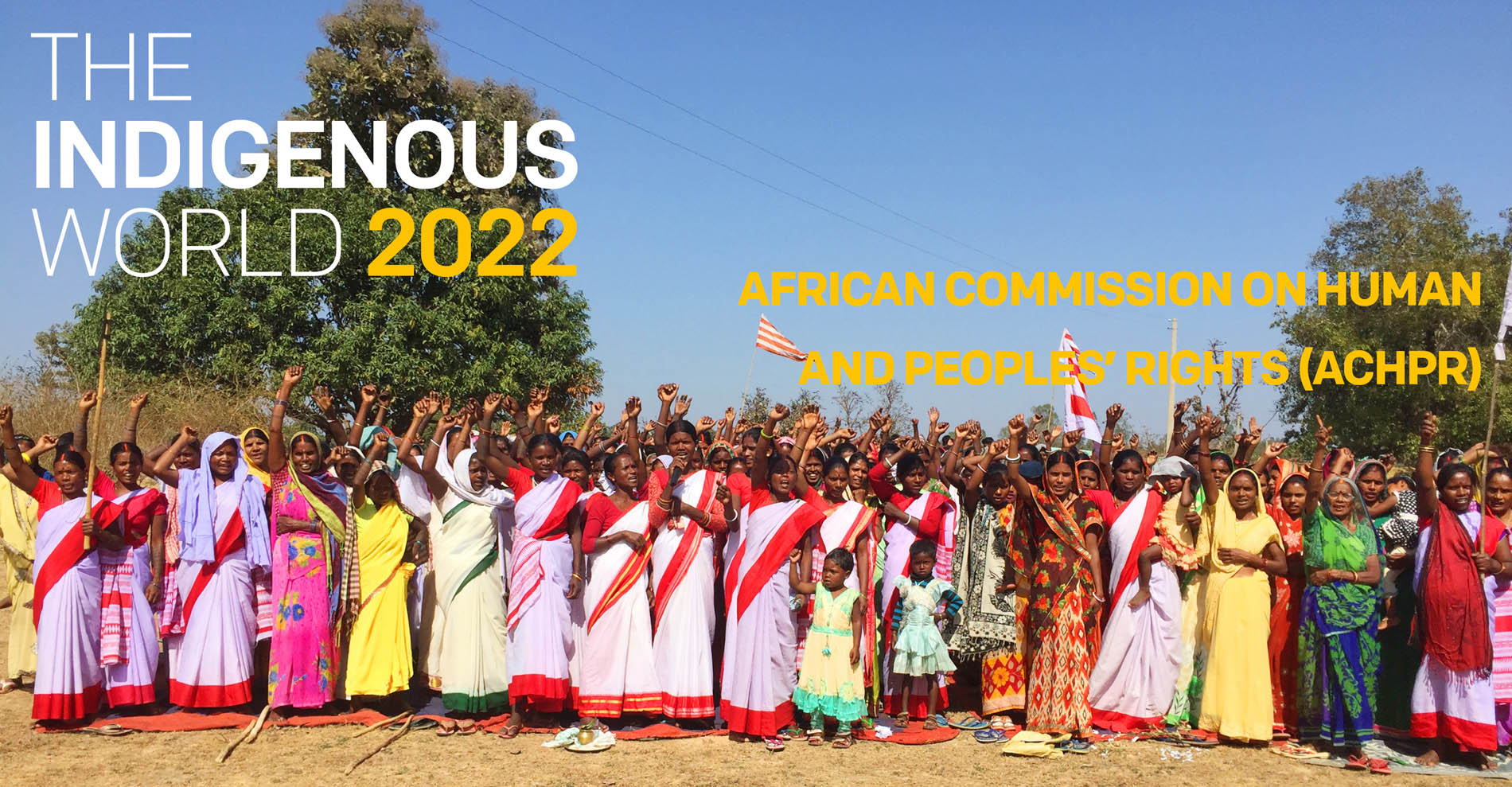
The African Commission on Human and Peoples’ Rights (ACHPR) was established in accordance with Article 30 of the African Charter on Human and Peoples’ Rights, with a mandate to promote and protect human and peoples’ rights on the continent. It was officially inaugurated on 2 November 1987 and
...
Disclaimer: From 3 March 2022 the Arctic Council has been pausing all official meetings of the Council and its subsidiary bodies until further notice. The pause is in effect at the time of publication of this article in April 2022.
The Arctic Council, established in 1996, is
...
The Association of Southeast Asian Nations (ASEAN) was established on 8 August 1967 with the signing of the ASEAN Declaration (Bangkok Declaration) by its founding Member States. The Member States of the Association are Brunei Darussalam, Cambodia, Indonesia, Lao PDR, Malaysia, Myanmar,
...
2021 marked a decade since the UN Guiding Principles on Business and Human Rights (GPs)[1] were approved by the Human Rights Council. The GPs set out the obligations of states under international human rights law, including that applicable to
...
The Convention on Biological Diversity is an international treaty under the United Nations (UN), adopted in 1992. The Convention has three objectives: to conserve biodiversity, to promote its sustainable use, and to ensure the equitable sharing of the benefits arising from its utilisation (Art.
...
With their wisdom, energy and empowerment, Indigenous women are agents of change both in their own lives, as Indigenous women, and in the lives of their peoples, as members of their communities. They plant the seeds with which to defend and demand full exercise of their individual and
...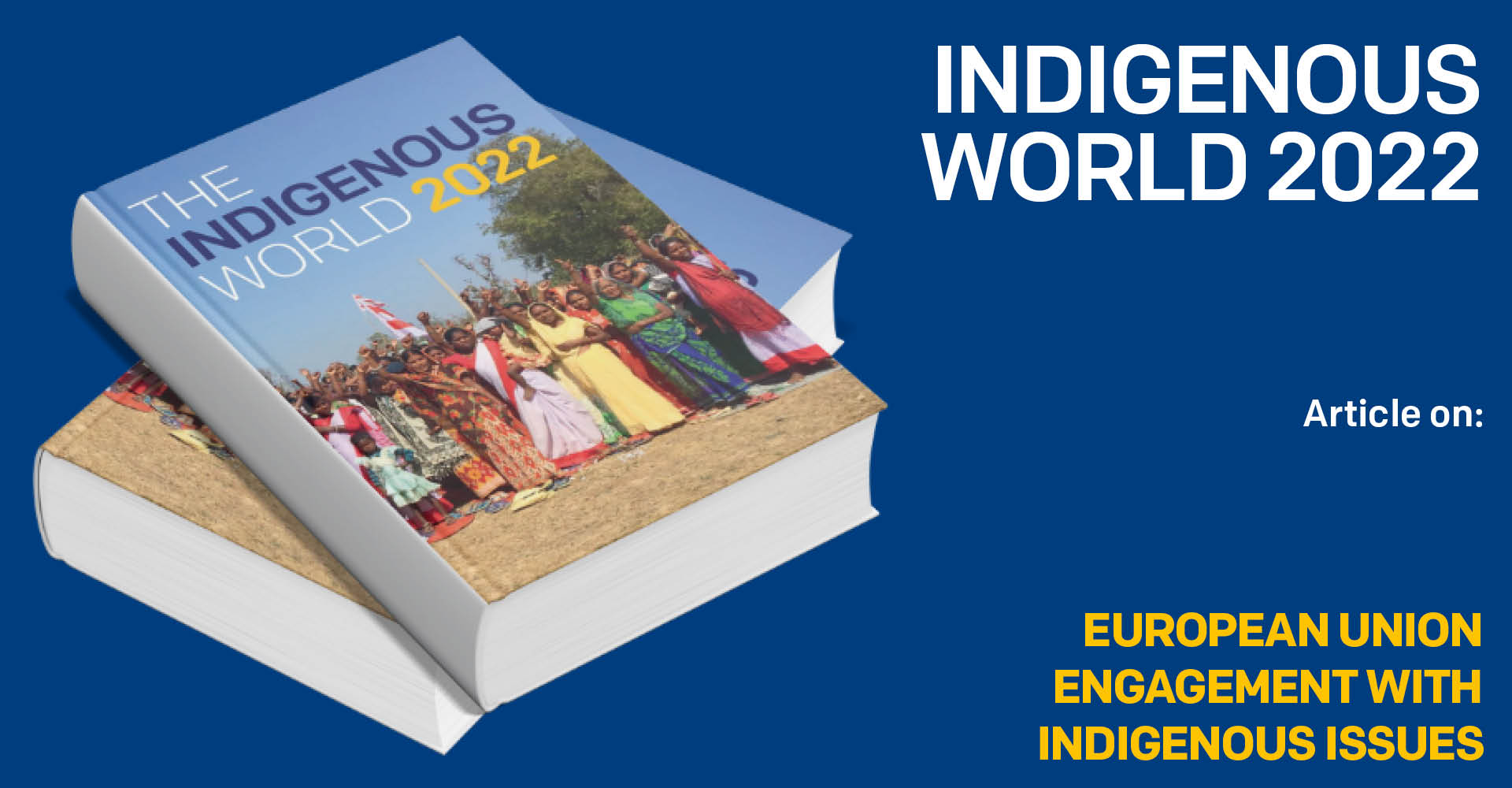
The European Union (EU) is a political and economic union of 27 Member States. Its legislative and executive powers are divided between the EU main institutions: the European Parliament (co-legislative authority), the Council of the European Union (co-legislative and executive authority) and
...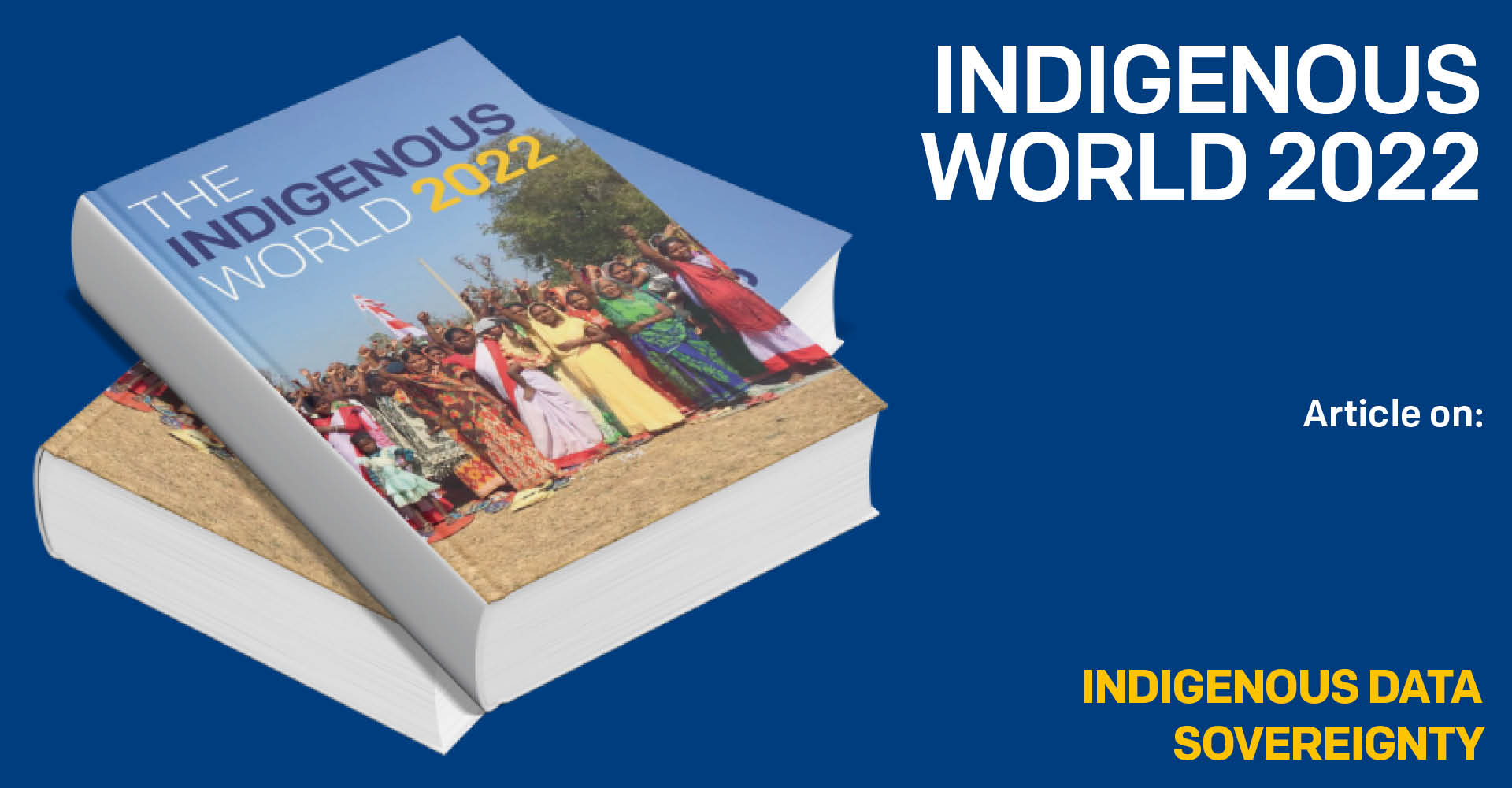
Indigenous Peoples have always been “data warriors”.[1] Their ancient traditions recorded and protected information and knowledge through art, carving, song, chants and other practices. Deliberate efforts to expunge these knowledge systems were part
...
The Indigenous Peoples’ Forum at IFAD was established in 2011 as a permanent process of consultation and dialogue between representatives of Indigenous Peoples’ institutions and organizations, IFAD and governments. The global meeting of the Forum convenes every second February in conjunction
...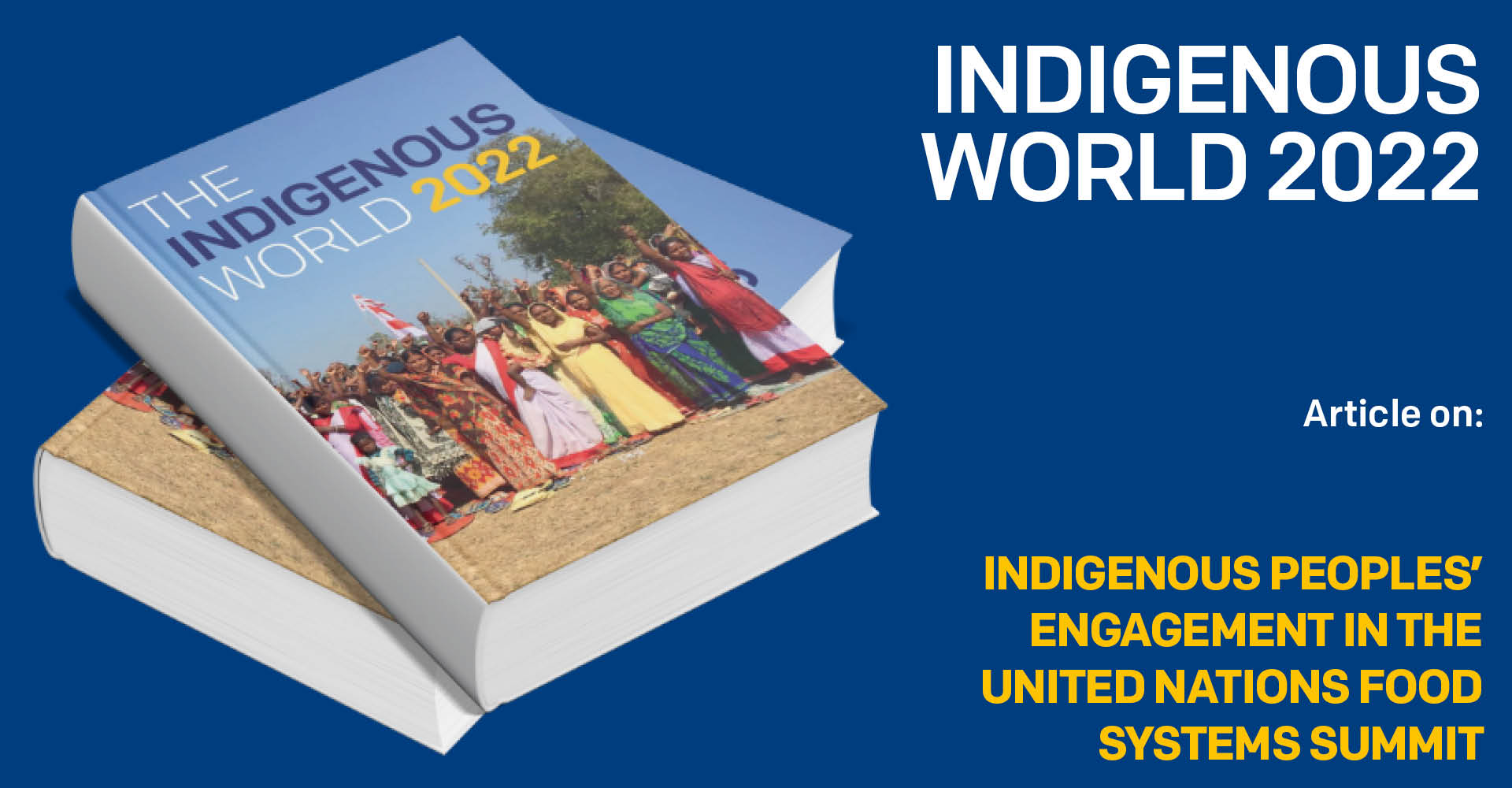
Under the leadership of UN Secretary-General António Guterres, the UN Food Systems Summit took place on Thursday 23 September 2021. It was a completely virtual event during the UN General Assembly High-Level Week.
The UN Food Systems Summit (FSS) was intended to provide an historic
...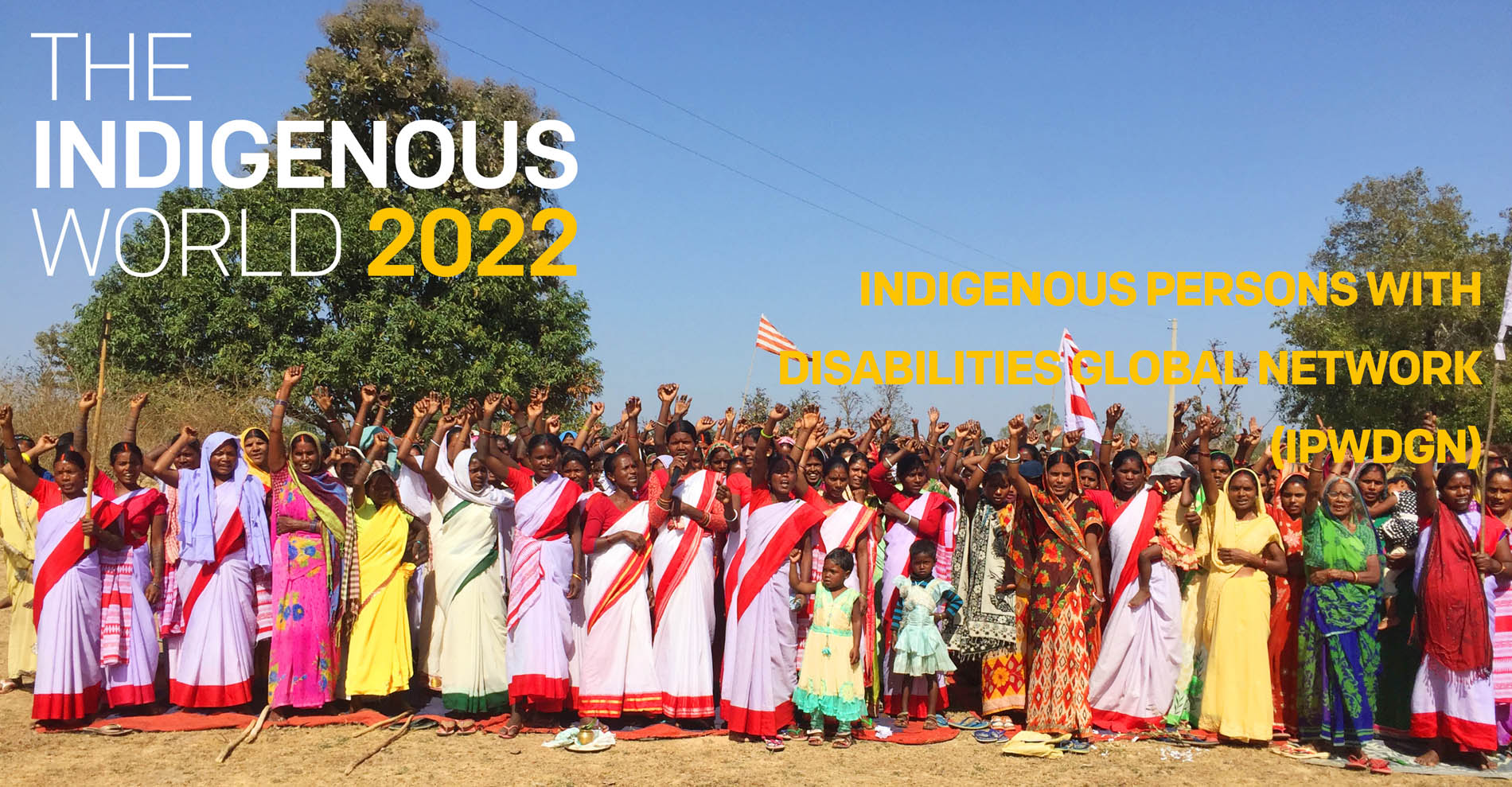
Over 1 billion people, or approximately 15% of the world’s population, are persons with disabilities.[1] Applying this percentage to the estimated 476 million Indigenous Peoples globally, the number of Indigenous persons with disabilities stands at
...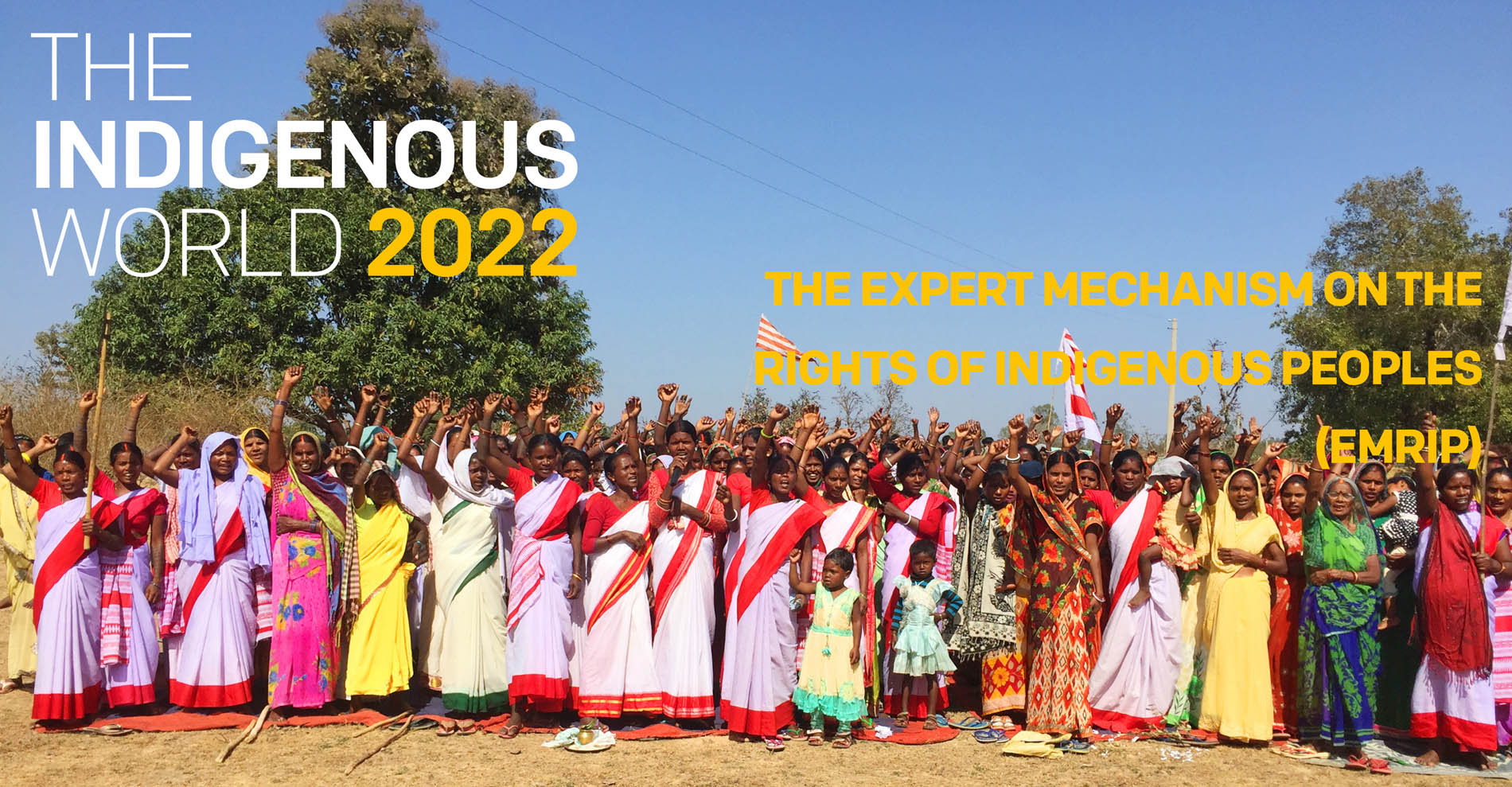
The Expert Mechanism on the Rights of Indigenous Peoples (EMRIP) is a subsidiary body of the Human Rights Council composed of seven independent members, one from each of the seven Indigenous sociocultural regions: Africa; Asia; the Arctic; Central and Eastern Europe, the Russian Federation,
...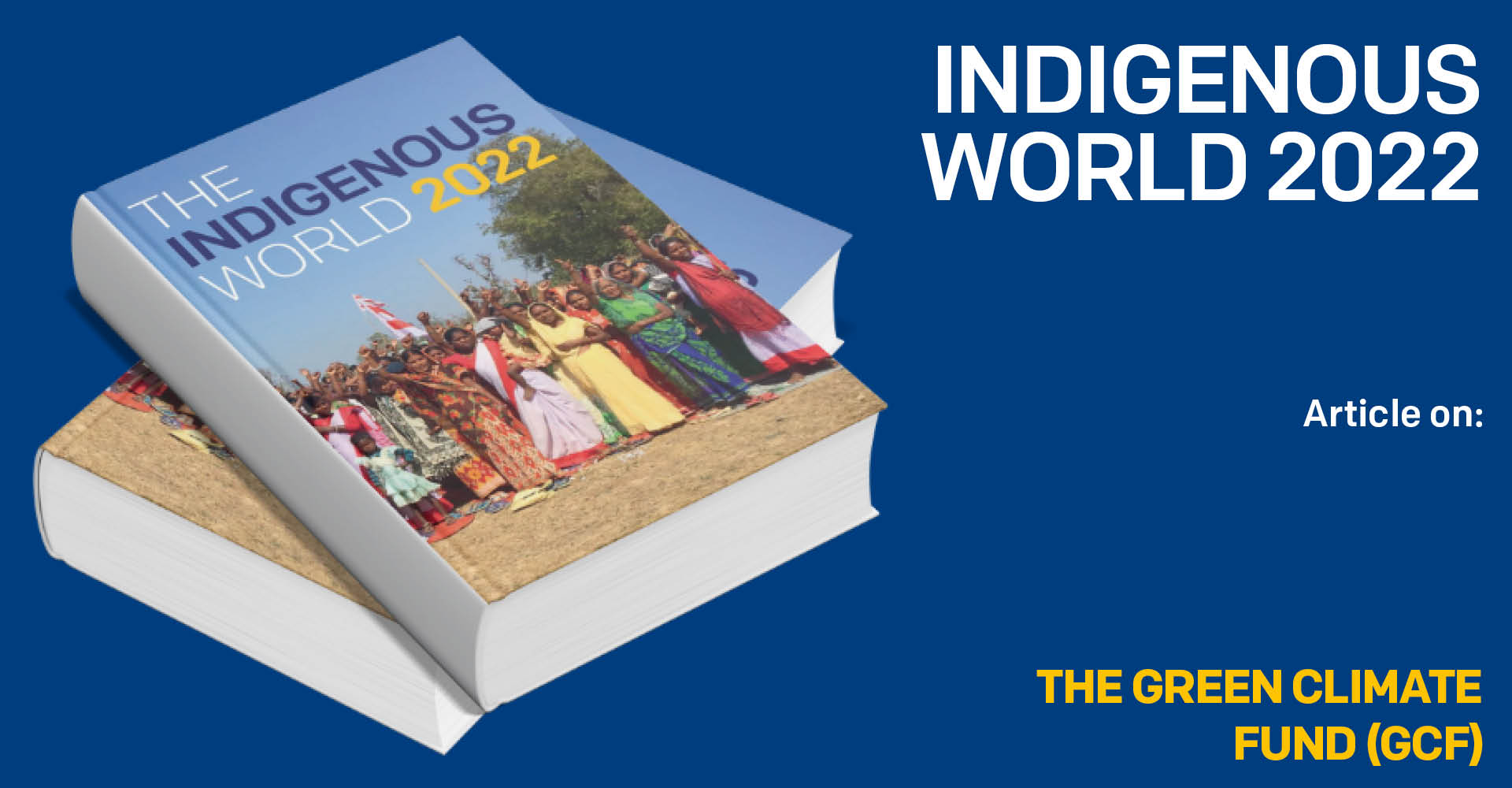
The Green Climate Fund (GCF) is a climate finance mechanism established by the United Nations Framework Convention on Climate Change (UNFCCC) in 2010 and operating since 2015. The GCF assists developing countries with climate adaptation and mitigation actions. It aims to catalyse a flow of
...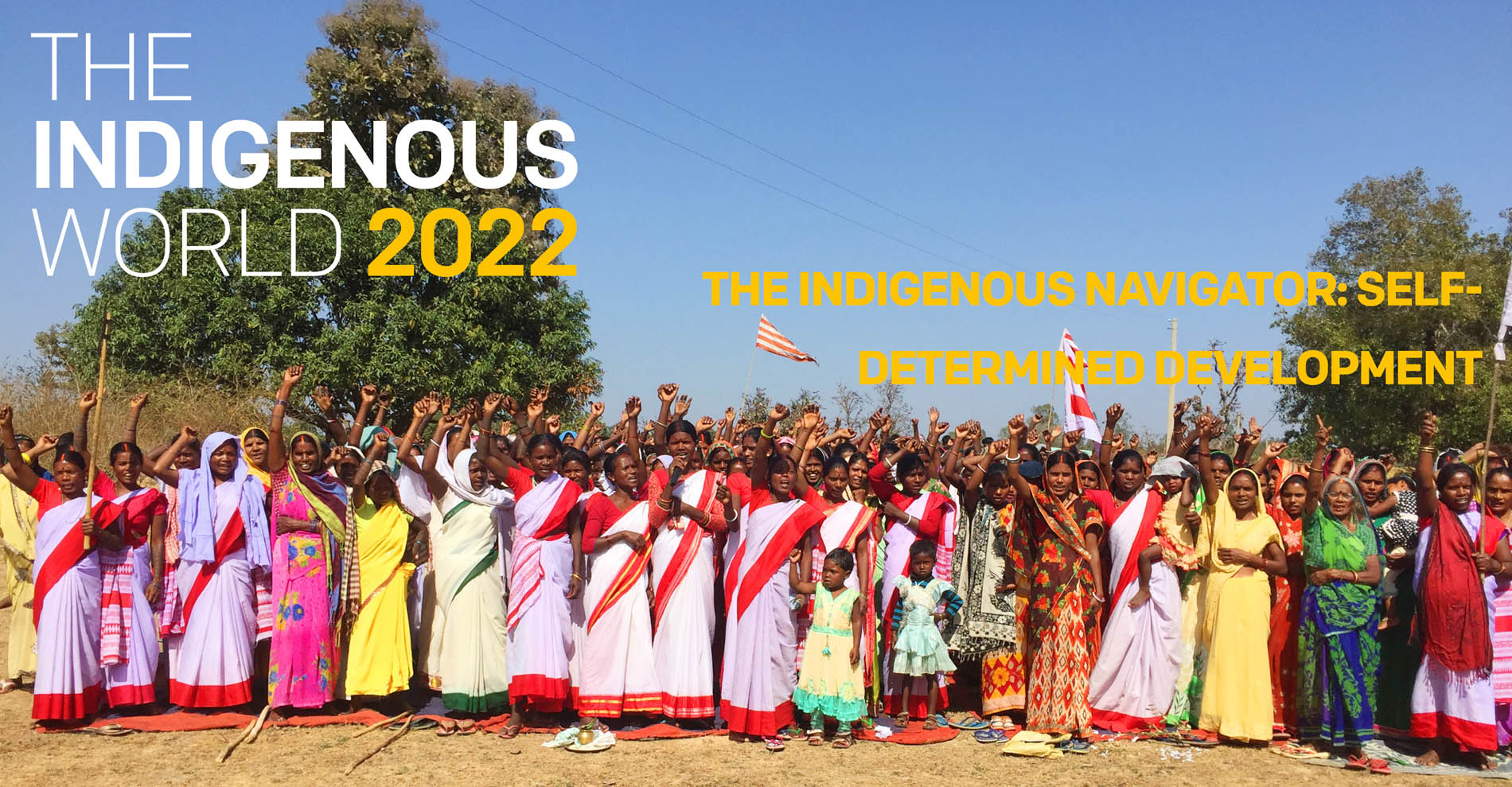
The Indigenous Navigator is an online portal providing access to a set of tools developed for and by Indigenous Peoples. By using the Indigenous Navigator, Indigenous organisations and communities, duty bearers, NGOs and journalists can access free tools and resources based on updated
...
The Inter-American Human Rights System (IAHRS) is composed of two human rights bodies: the Inter-American Commission on Human Rights (IACHR or the Commission) and the Inter-American Court of Human Rights (IACHR Court). Both bodies work to promote and protect human rights in the Americas. The
...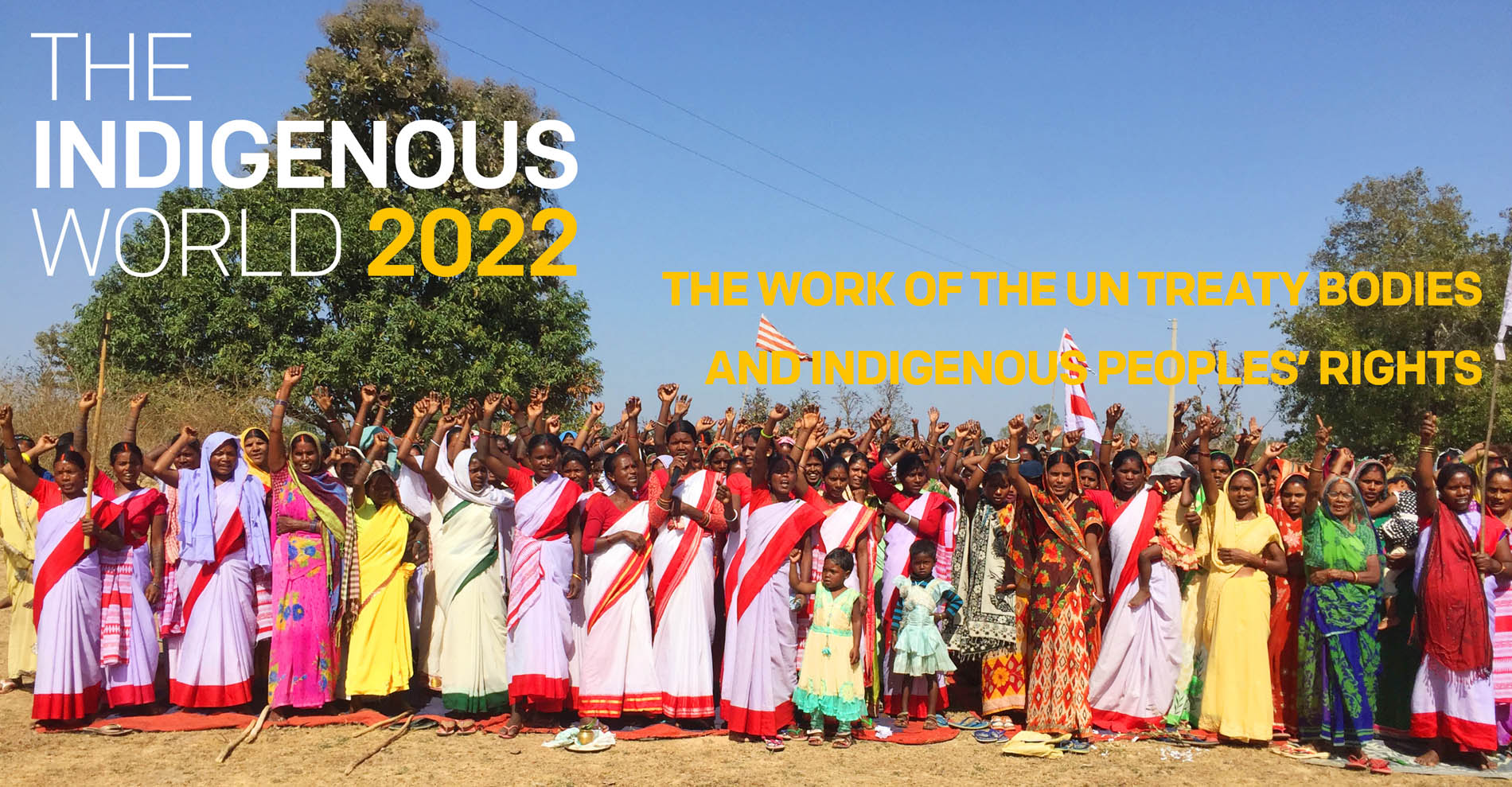
The human rights treaty bodies[1] are the committees of independent experts in charge of monitoring the implementation by state parties of the rights protected in international human rights treaties. There are nine core international human rights
...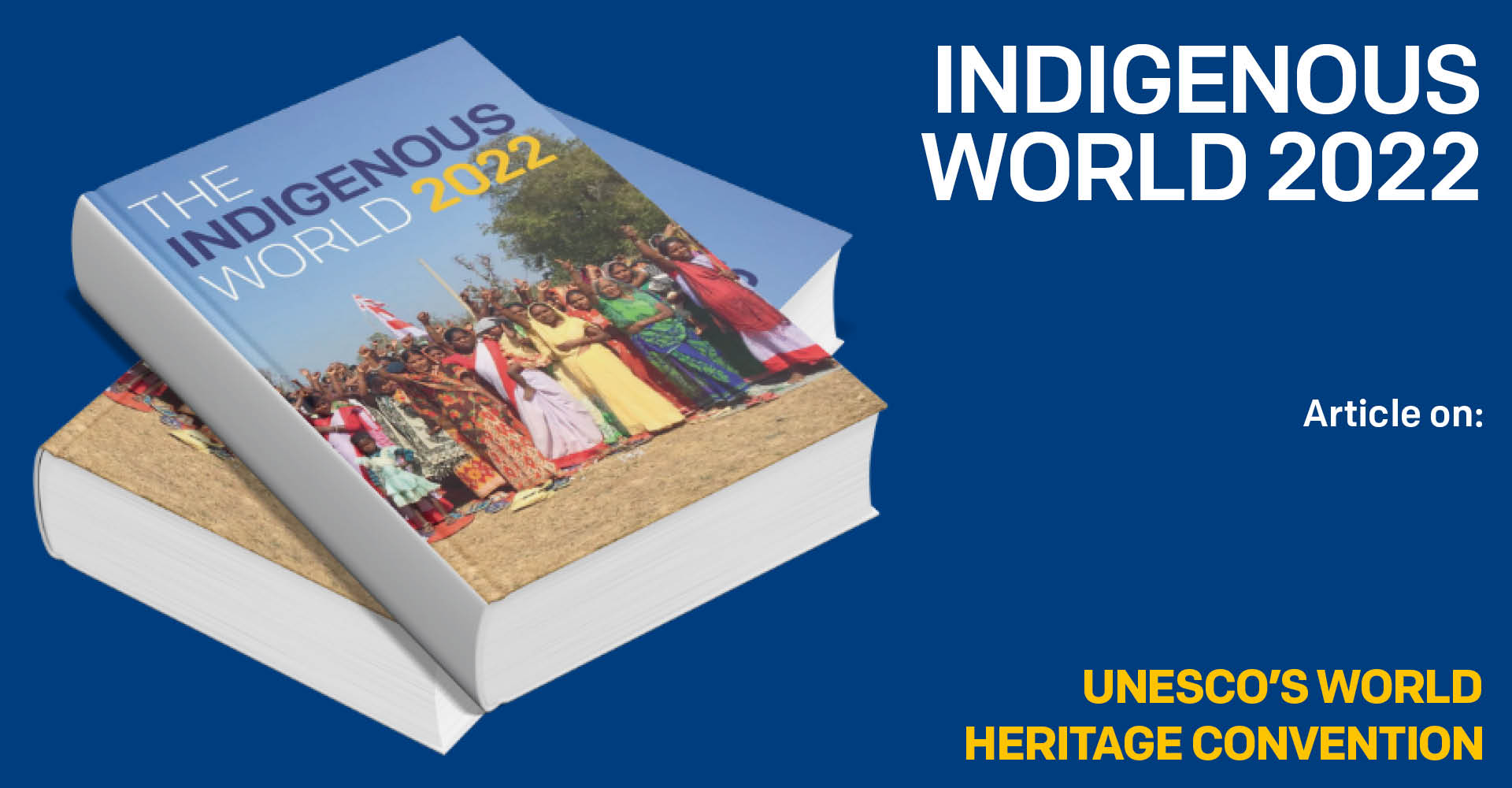
The Convention Concerning the Protection of the World Cultural and Natural Heritage (“World Heritage Convention”) was adopted by UNESCO’s General Conference in 1972. With 194 States Parties, it is today one of the most widely ratified multilateral treaties. Its main purpose is the
...
The United Nations Framework Convention on Climate Change (UNFCCC) is an international treaty adopted at the Earth Summit in Rio in 1992 to tackle climate change. In 2015, the UNFCCC adopted the Paris Agreement, a universal agreement to reduce global greenhouse gas emissions. The goal of the
...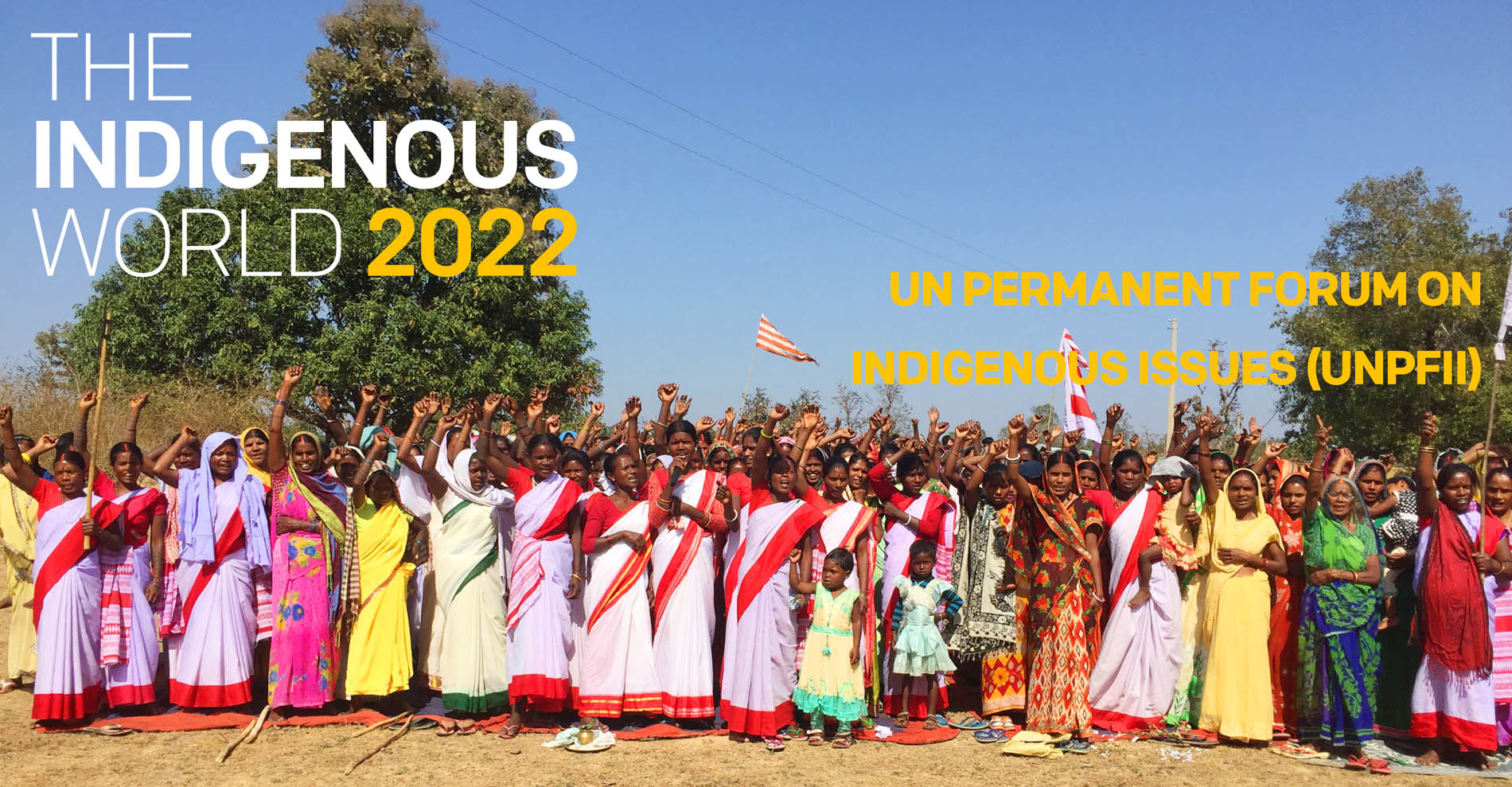
The United Nations Permanent Forum on Indigenous Issues (Permanent Forum) is an expert body of the United Nations Economic and Social Council (ECOSOC) with a mandate to provide advice on Indigenous issues to ECOSOC and, through it, to the UN agencies, funds and programmes; to raise
...
The Special Rapporteur on the rights of indigenous peoples is one of the 58 “special procedures” of the United Nations Human Rights Council. The special procedures are independent human rights experts with mandates to report and advise on human rights from a thematic or country-specific
...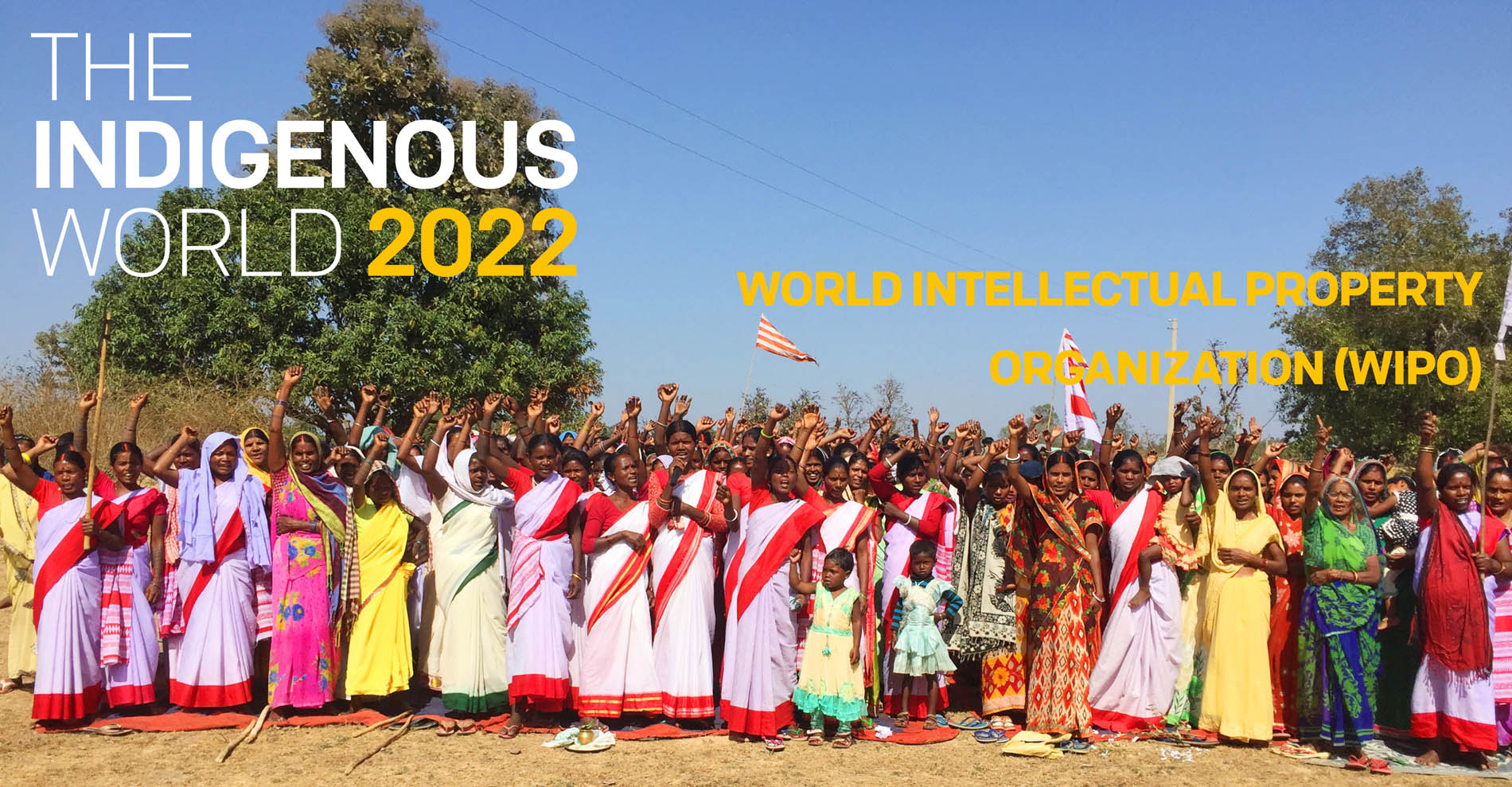
Indigenous Peoples have rights over their traditional knowledge,[1] traditional cultural expressions[2] and genetic resources,[3] including associated
...
As an instrument for the conservation and protection of natural and cultural heritage sites, which affords sites recognized as “World Heritage sites” an additional level of protection beyond domestic laws and regulations, the World Heritage Convention (“the Convention”) can play, and in some
...
Author: Berardino, Sharon Marie
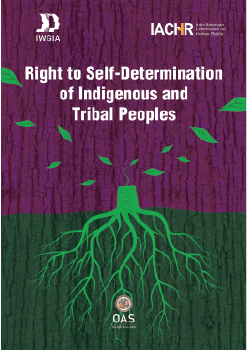
This English version is an executive summary.
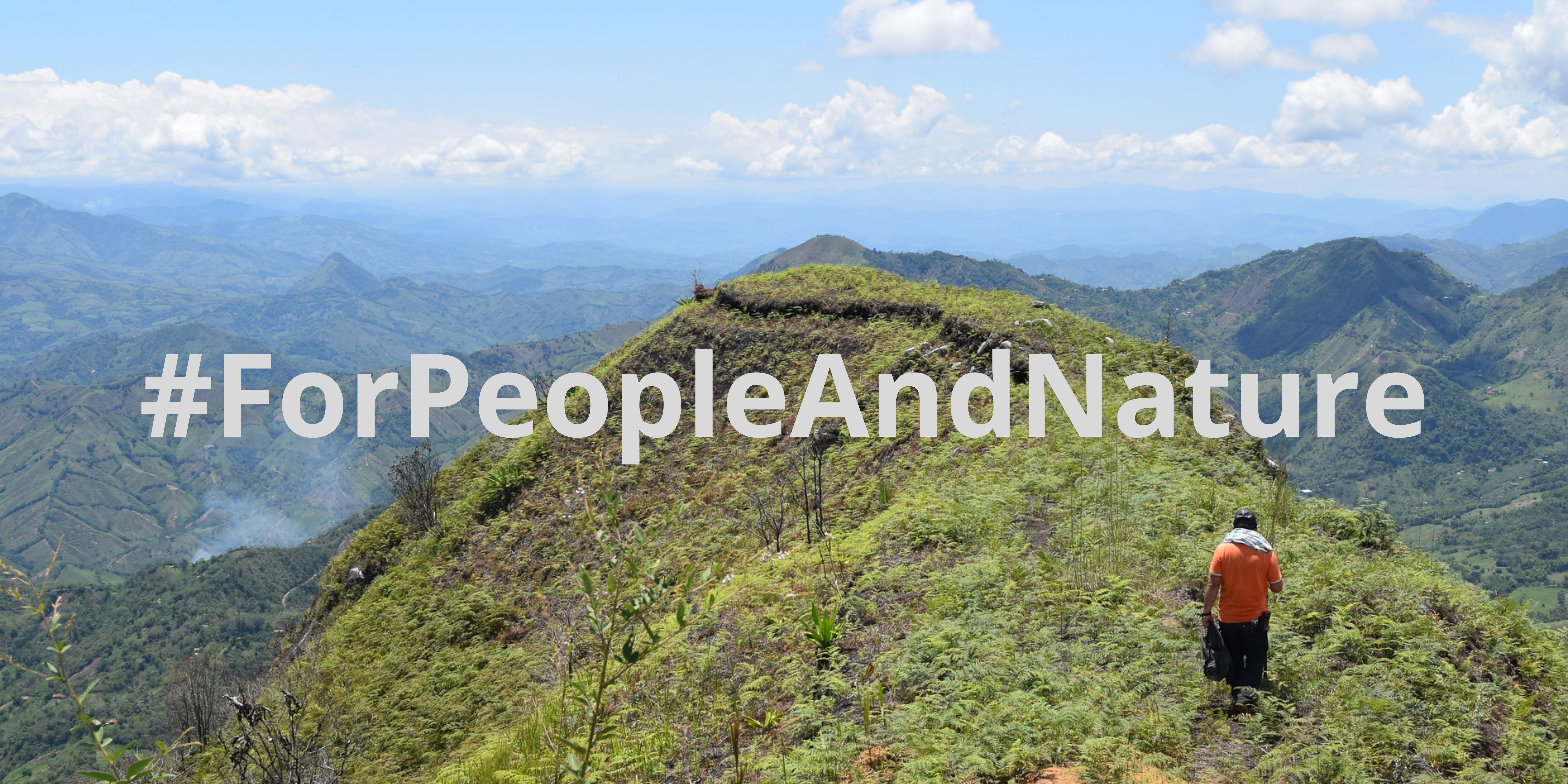
Over 150 civil society organisations and academics sign open letter calling on world leaders to integrate human rights into global and national environmental policy and practice
In the lead-up to historic agreements on climate and nature being made in the next month, more than
...
50 years since the Barbados Declaration
This year, 2021, marks the 50th anniversary of the historic meeting held on the Caribbean island of Barbados, where a group of 15 anthropologists (14 men and 1 woman) from Amazonian, Central American and European countries met to reflect on the
...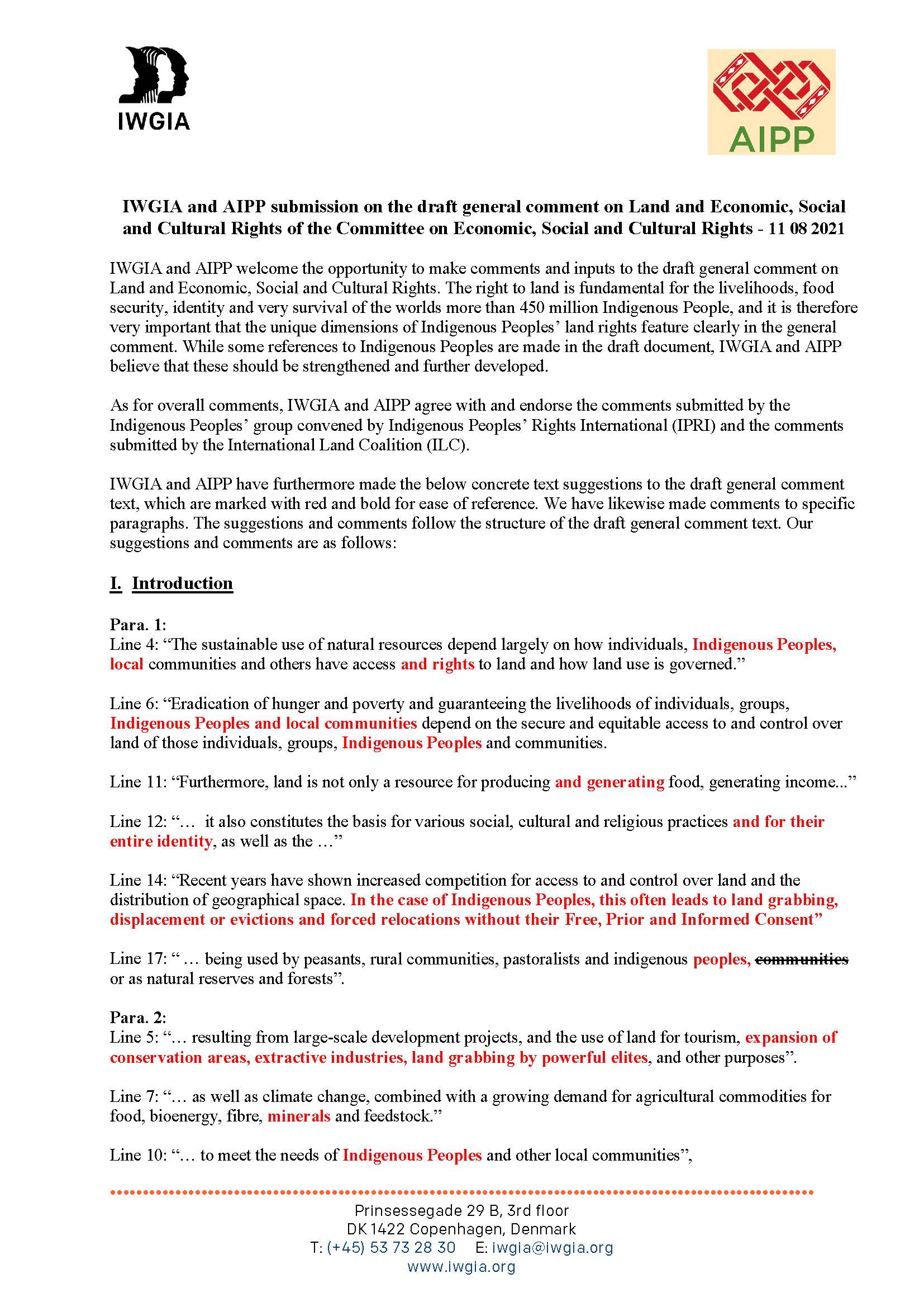
IWGIA and AIPP welcome the opportunity to make comments and inputs to the draft general comment on Land and Economic, Social and Cultural Rights. The right to land is fundamental for the livelihoods, food security, identity and very survival of the world's more than 450 million Indigenous
...
With this written submission, the International Work Group on Indigenous Affairs (IWGIA) seeks to bring forward the voices, perspectives and experiences of indigenous women and girls, particularly from Africa, Asia, Latin America and the Arctic, and to include them in the development of CEDAW’s
...
2020 was an unprecedented year for the world’s population who experienced a once-in-a-lifetime global pandemic. Indigenous Peoples – armed with knowledge and experience spanning generations from having faced contagious illnesses and other pandemics – responded to COVID-19 with traditional as
...
This compilation is the unique result of a collaborative effort between Indigenous and non-indigenous activists and scholars who voluntarily document and report on the situation of Indigenous Peoples’ rights. We thank them and celebrate the bonds and sense of community that result from the
...
This publication is a practical guide for Indigenous Peoples on the Sustainable Development Goals.
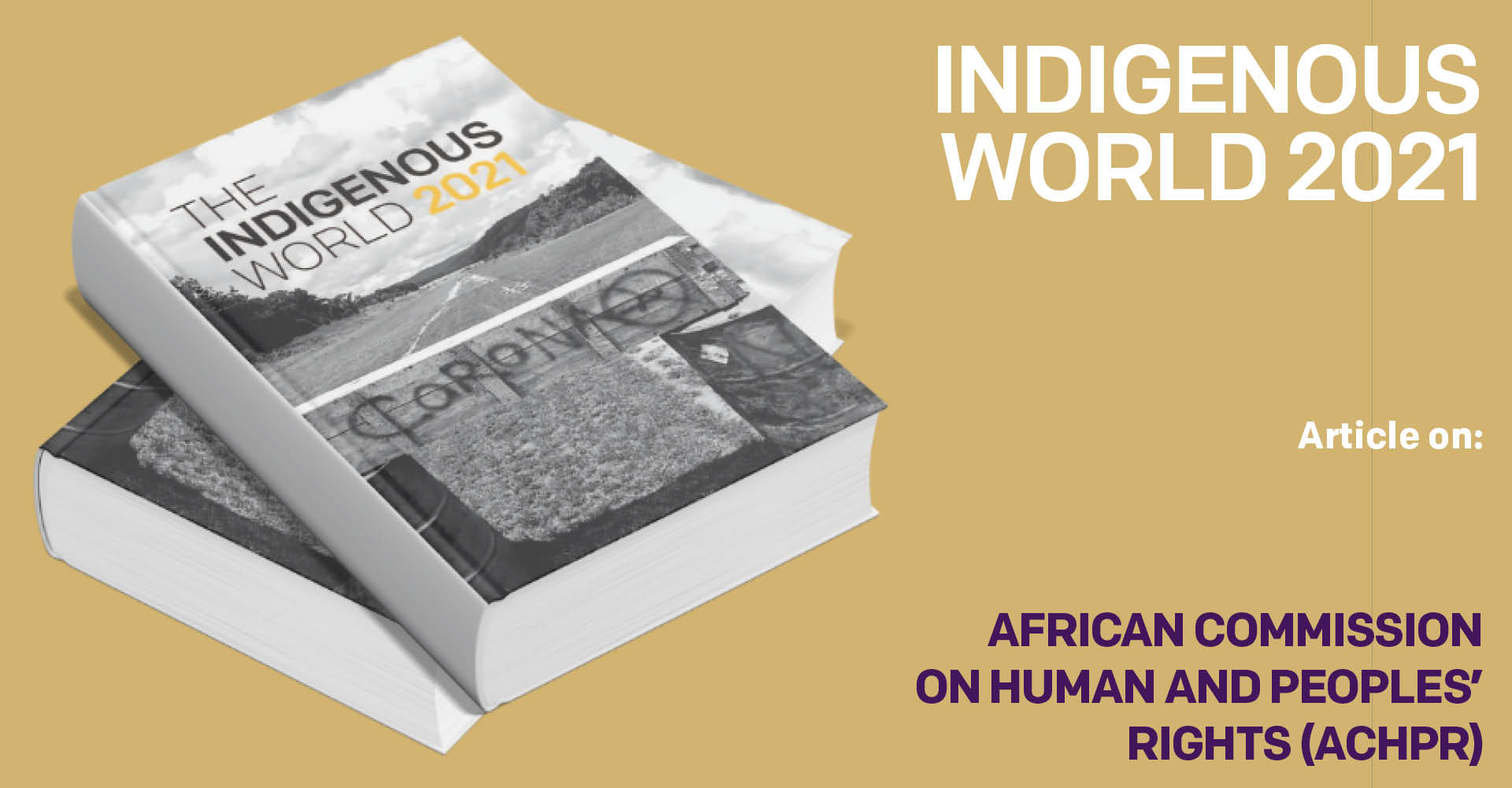
The African Commission on Human and Peoples’ Rights (ACHPR) was established in accordance with Article 30 of the African Charter on Human and Peoples’ Rights with a mandate to promote and protect human and peoples’ rights on the continent. It was officially inaugurated on 2 November 1987 and is
...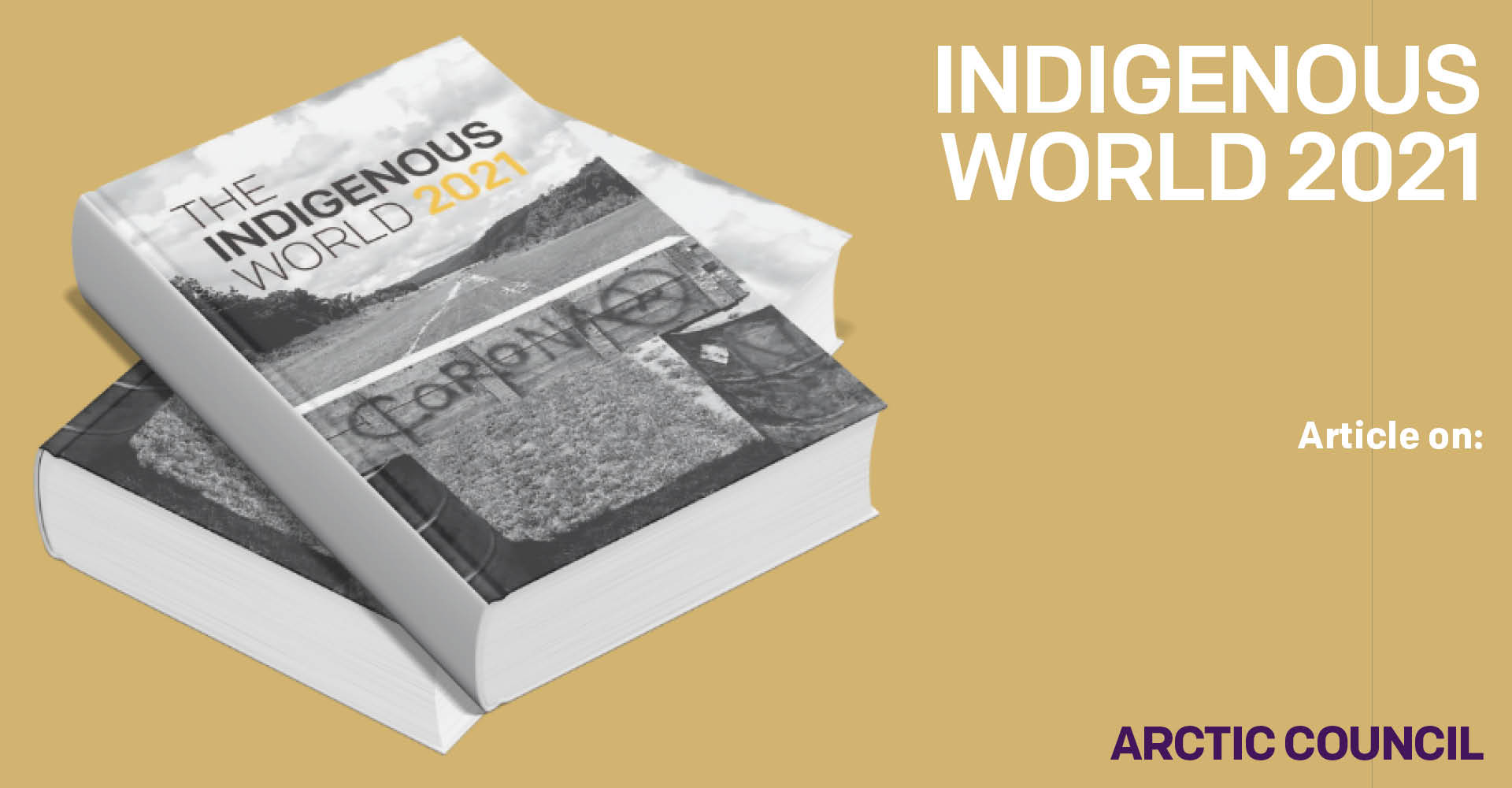
The Arctic Council is the leading intergovernmental forum for promoting cooperation in the Arctic. The Arctic Council is unique in that, in addition to eight Arctic States, six Arctic Indigenous Peoples’ organizations are granted Permanent Participant status and are institutionally important
...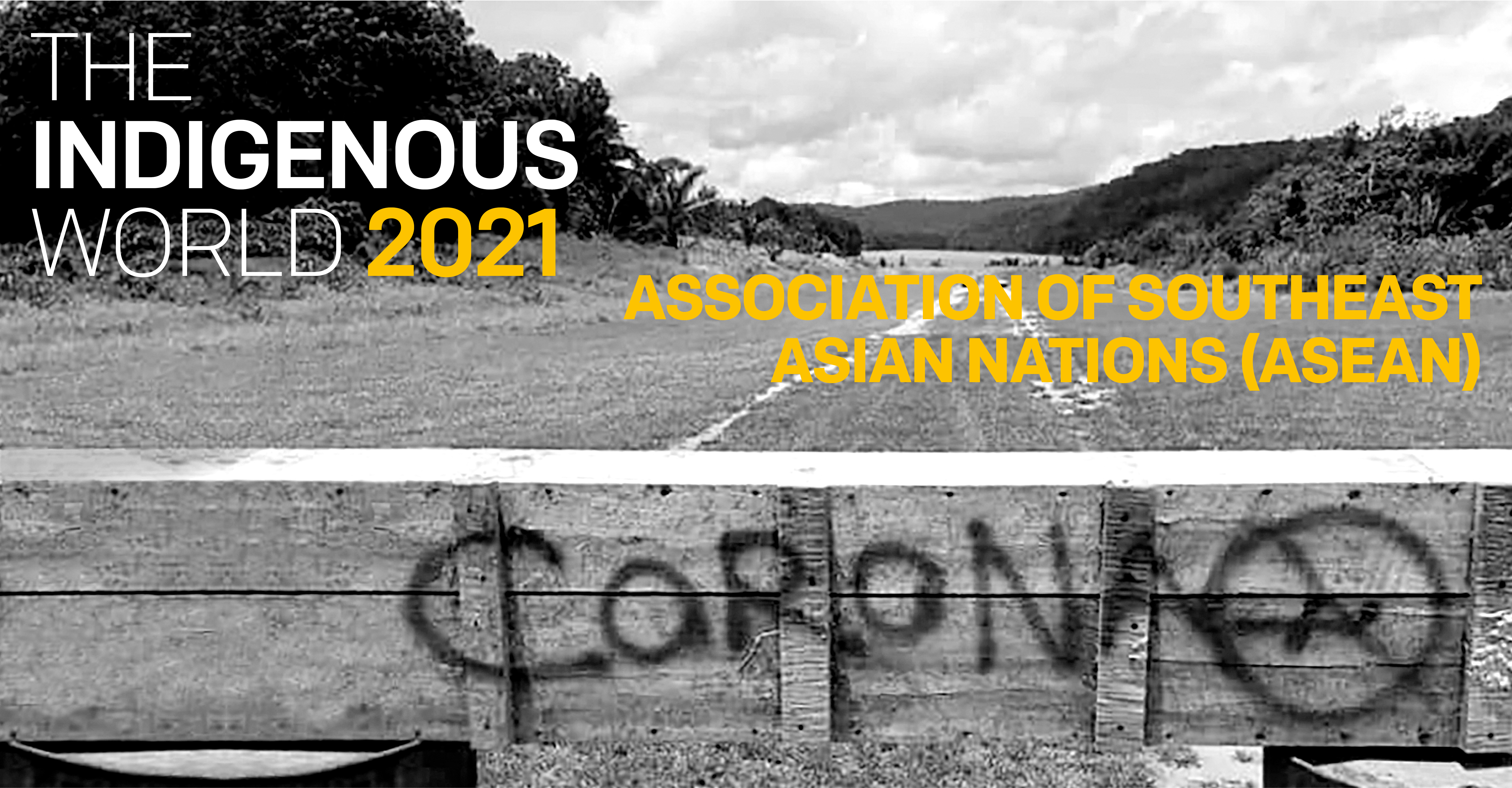
The Association of Southeast Asian Nations (ASEAN) was established on 8 August 1967 with the signing of the ASEAN Declaration (Bangkok Declaration) by its founding member states: Indonesia, Malaysia, Philippines, Singapore and Thailand. Brunei, Cambodia, Lao PDR, Vietnam and Myanmar later
...
2020 was a critical year for human rights around the world. Added to the restrictions that many states had already placed on the exercise of these rights both in the global North and South, triggering the protests referred to in The Indigenous World last year, restrictions were
...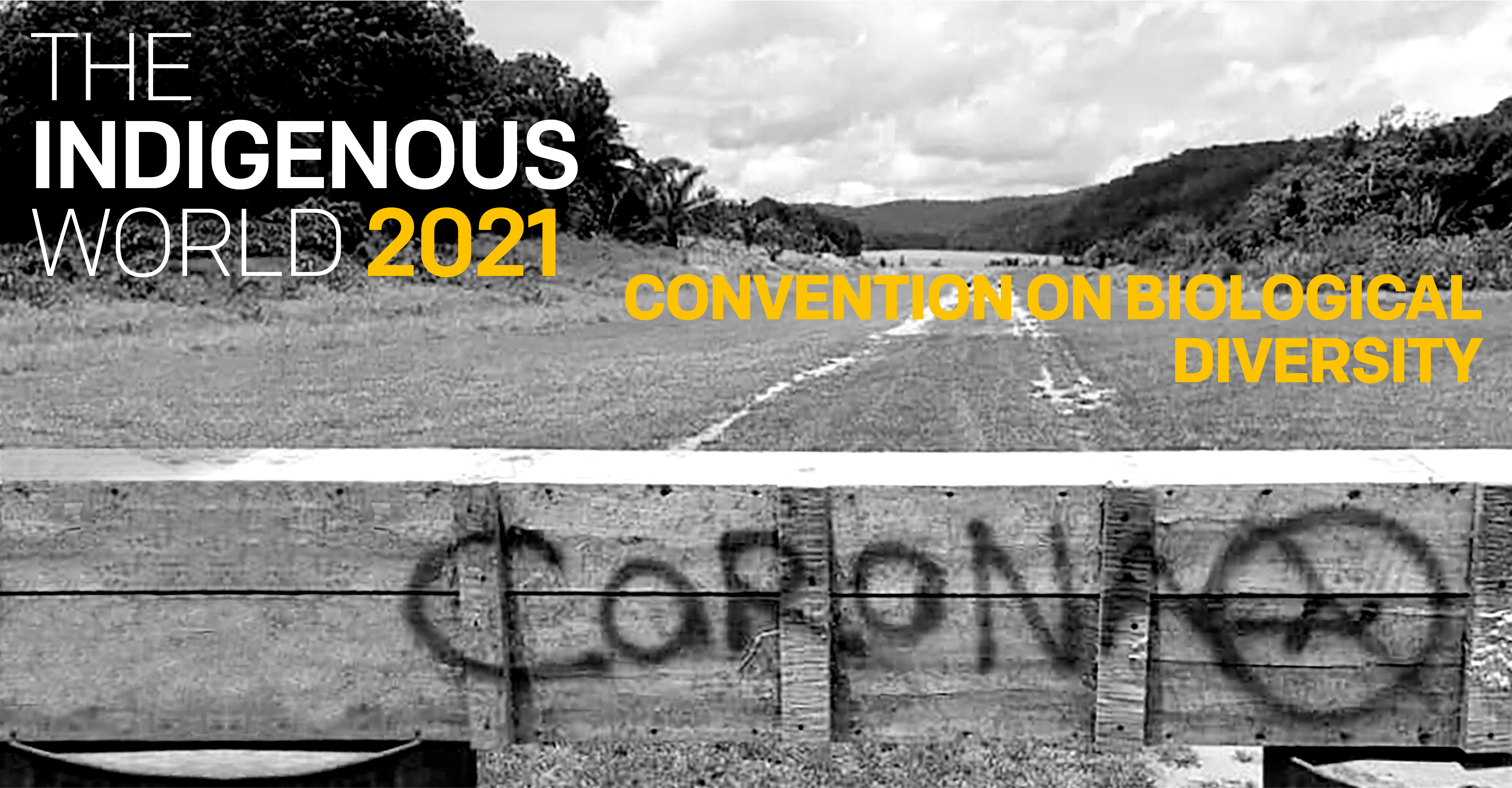
The Convention on Biological Diversity is an international treaty under the United Nations (UN) adopted in 1992. The Convention has three objectives: to conserve biodiversity, to promote its sustainable use, and to ensure the equitable sharing of the benefits arising from its utilisation (Art.
...
The international agenda for defending the human rights of Indigenous women seemed promising in 2020 given the Beijing +25 anniversary. We in the International Indigenous Women's Forum (FIMI) were organising to design a clear Advocacy Route as well to prepare for our own organisation’s 20th
...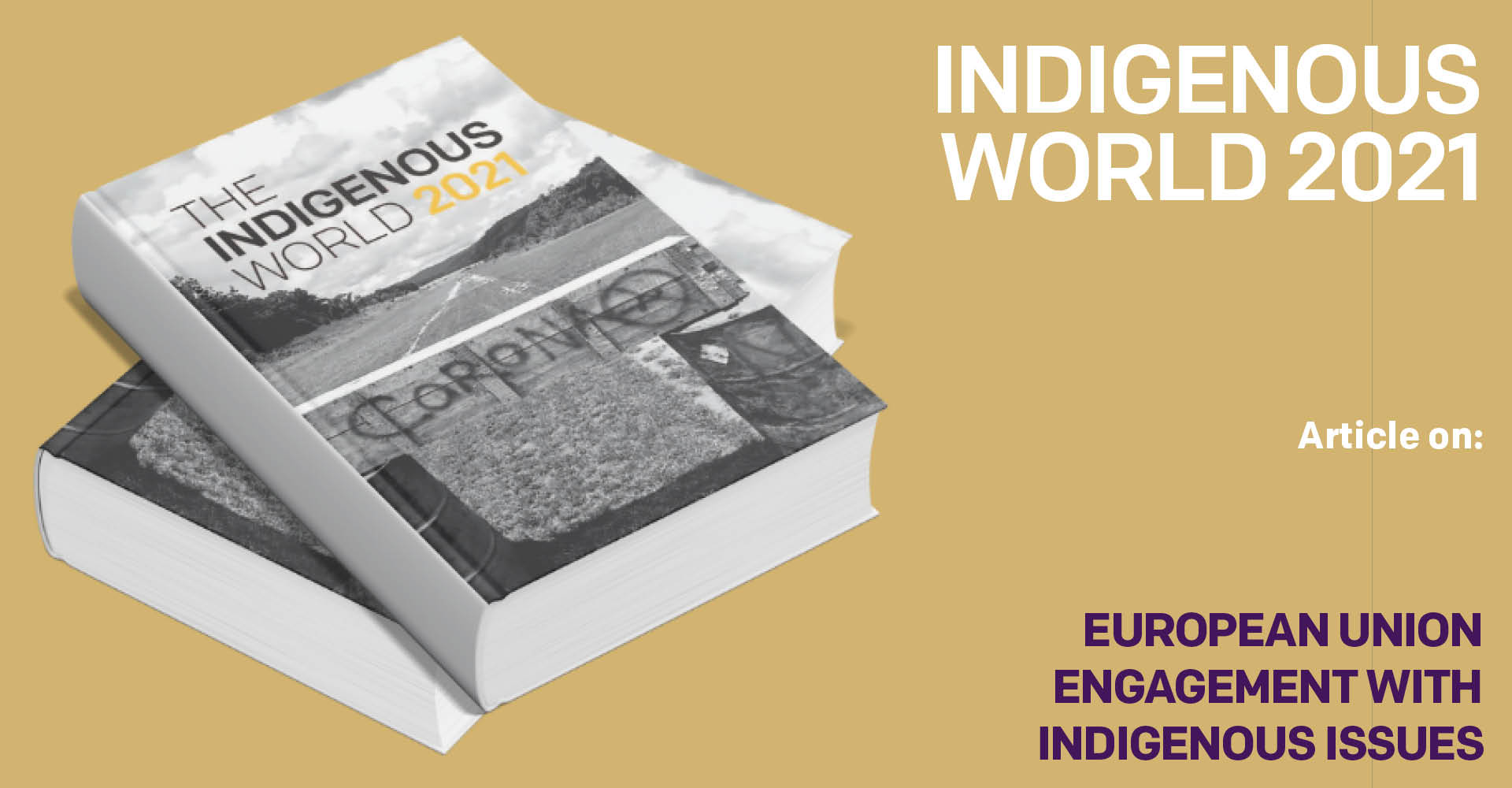
The European Union (EU) is a political and economic union of 27 Member States established in 1951. Its legislative and executive powers are divided between the EU main institutions: the European Parliament (co-legislative authority), the Council of the European Union (co-legislative and
...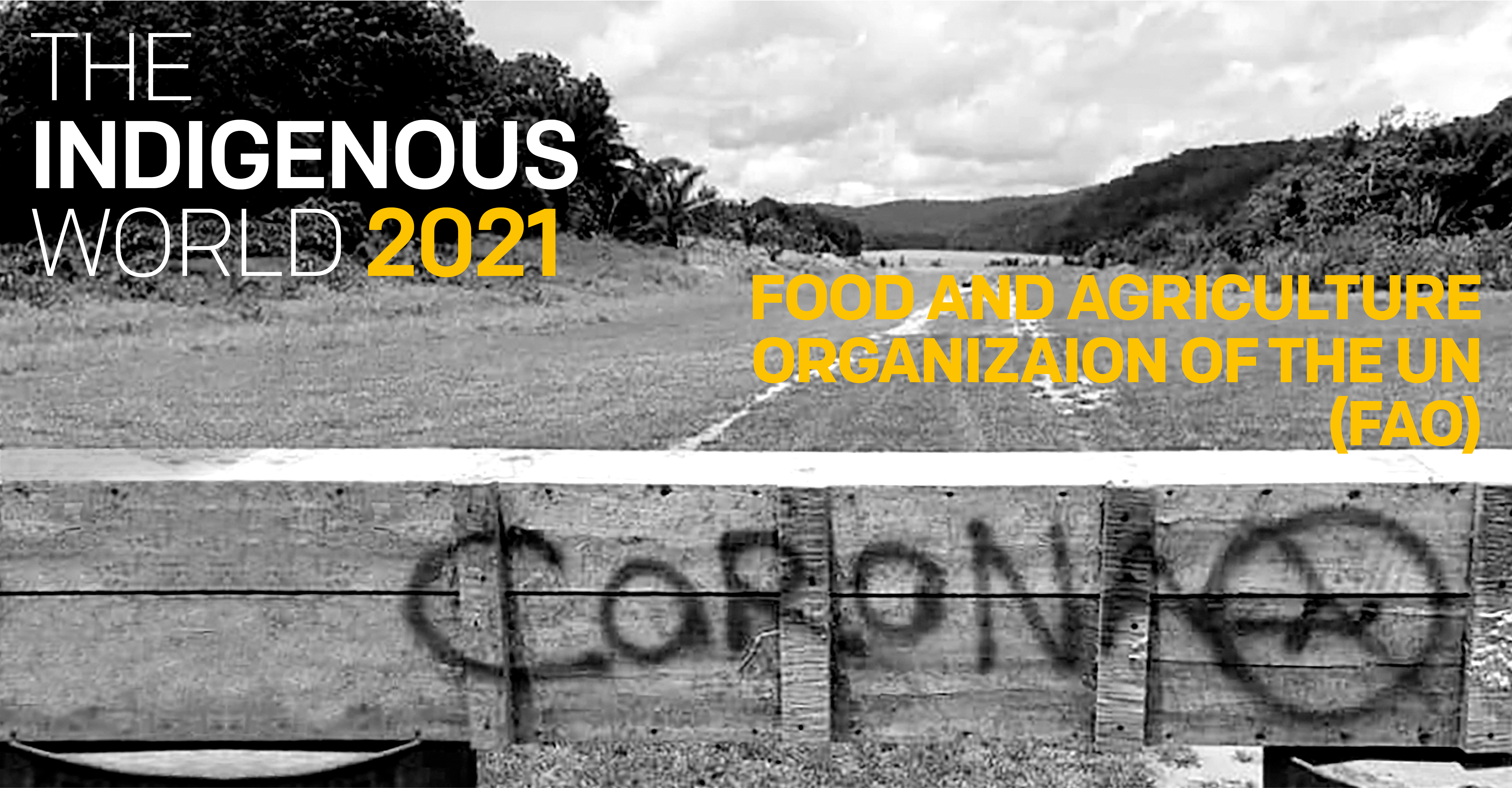
The Food and Agriculture Organization (FAO) is a specialized agency of the United Nations that leads international efforts to defeat hunger and malnutrition. FAO was founded in 1945, and its primary goal is to achieve food security for all making sure that people have regular access to enough
...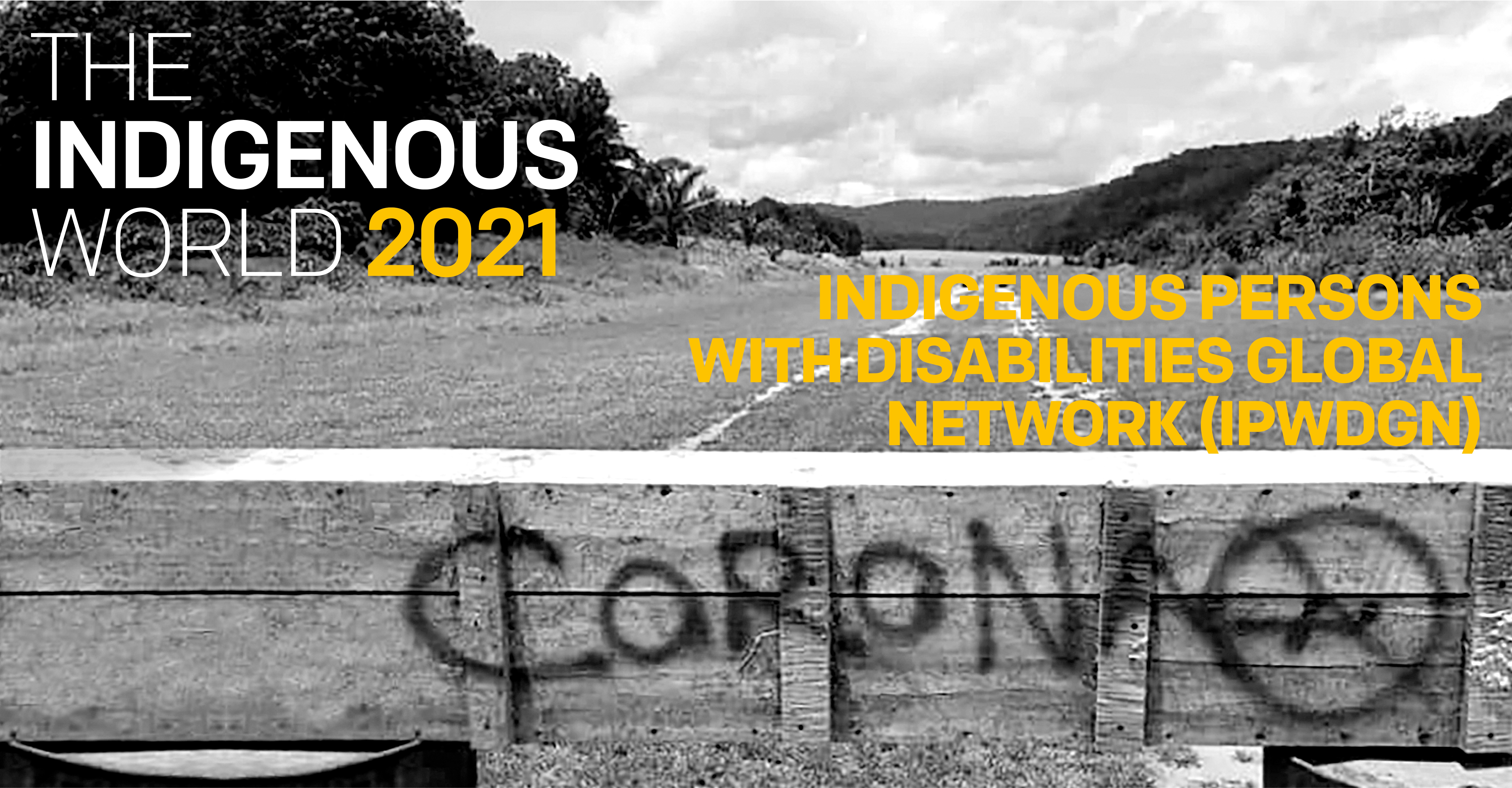
Over 1 billion people, or approximately 15% of the world’s population, are persons with disabilities.[1] Applying this percentage to the estimated 476 million Indigenous Peoples globally, the number of Indigenous persons with disabilities stands at
...
Indigenous Peoples have always been “data warriors”.[1] Our ancient traditions recorded and protected information and knowledge through art, carving, song, chants and other practices. Deliberate efforts to expunge these knowledge systems
...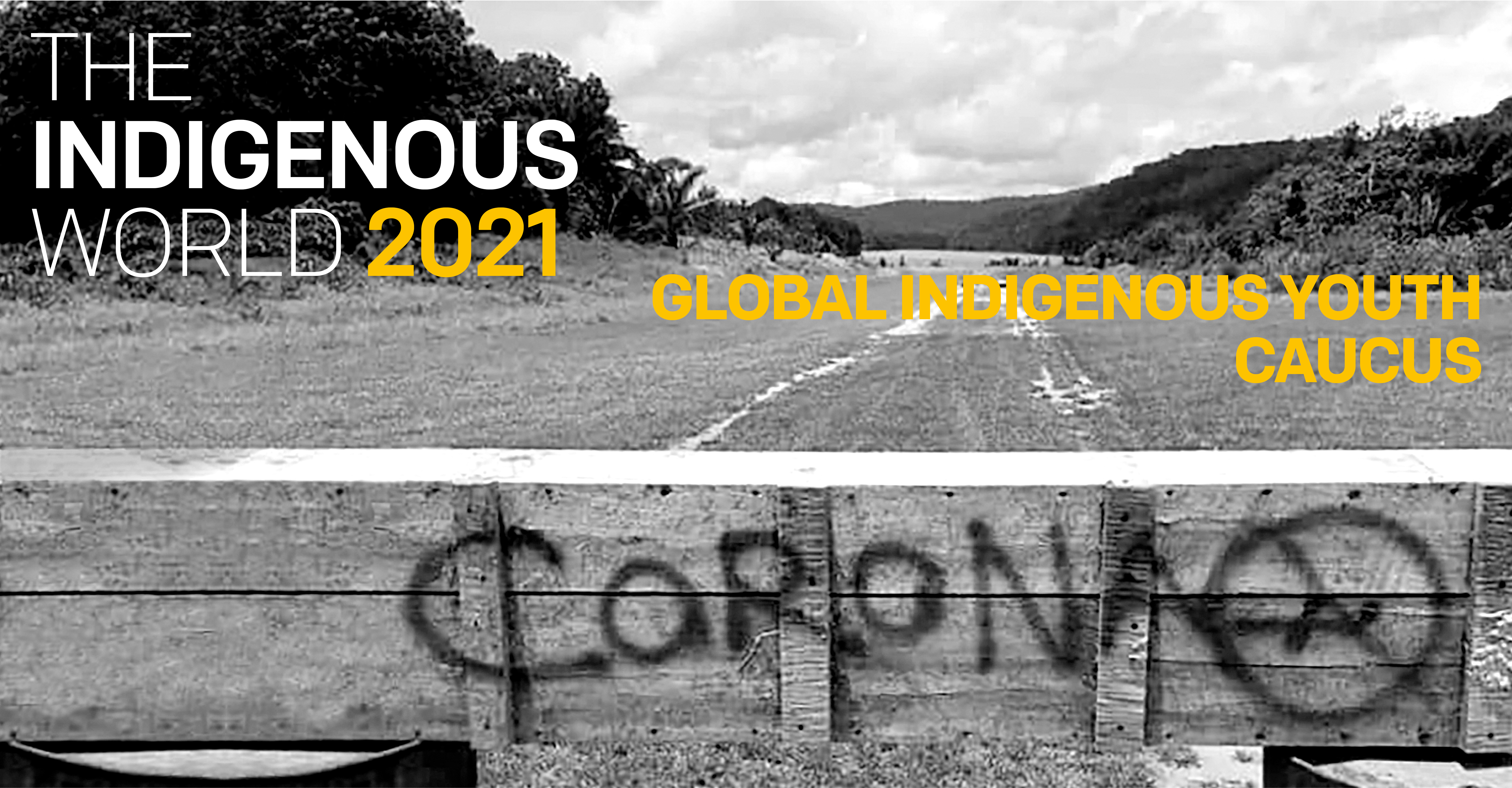
Indigenous youth are aware that the world and its regions are going through a time of change marked, on the one hand, by key actors committed to respecting human rights and, on the other, by current movements ranged against the implementation of those rights.
The global situation in
...
IFAD’s Policy on Engagement with Indigenous Peoples aims to enhance its development effectiveness in its engagement with Indigenous Peoples’ communities in rural areas. As a key instrument for implementing the IFAD Policy on Engagement with Indigenous Peoples, the Indigenous Peoples’ Forum was
...
The Expert Mechanism on the Rights of Indigenous (EMRIP) is a subsidiary body of the Human Rights Council composed of seven independent members, one from each of the seven Indigenous sociocultural regions: Africa; Asia; the Arctic; Central and Eastern Europe, the Russian Federation, Central
...
The Inter-American Human Rights System (IAHRS) comprises two human rights bodies: the Inter-American Commission on Human Rights (IACHR or the Commission) and the Inter-American Court of Human Rights (IACHR Court). Both bodies work to promote and protect human rights in the Americas. The IACHR
...
The Indigenous Navigator is an online portal providing access to a set of tools developed for and by Indigenous Peoples. By using the Indigenous Navigator, Indigenous organisations and communities, duty bearers, NGOs and journalists can access free tools and resources based on updated
...
The treaty bodies are the committees of independent experts in charge of monitoring the implementation by state parties of the rights protected in international human rights treaties. There are nine core international human rights treaties that deal with civil and political rights; economic,
...
The United Nations Framework Convention on Climate Change (UNFCCC) is an international treaty adopted at the Earth Summit in Rio in 1992 to tackle climate change. In 2015, the UNFCCC adopted the Paris Agreement, a universal agreement to reduce global greenhouse gas emissions. The goal of the
...
The United Nations Permanent Forum on Indigenous Issues (Permanent Forum) is an expert body of the United Nations Economic and Social Council (ECOSOC) with the mandate to provide advice on Indigenous issues to ECOSOC and, through it, to the UN agencies, funds and programmes, to raise awareness
...
The Special Rapporteur on the rights of indigenous peoples is one of the 56 “special procedures” of the United Nations Human Rights Council. The special procedures are independent human rights experts with mandates to report and advise on human rights from a thematic or country-specific
...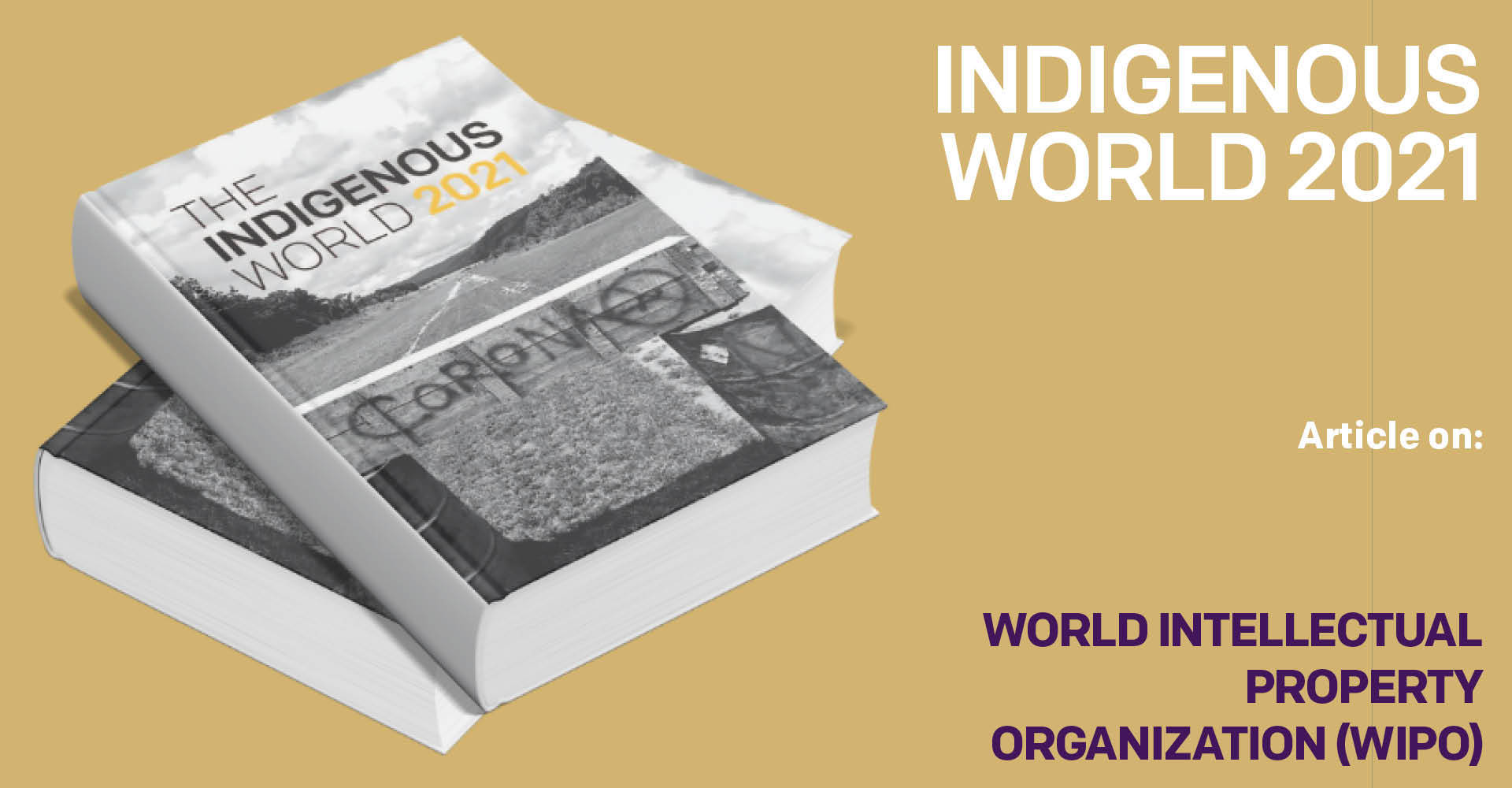
Indigenous Peoples have rights over their traditional knowledge,[1] traditional cultural expressions[2] and genetic resources,[3] including associated
...
This report addresses the resurgence of positions within anthropology that favour States taking the initiative in the establishment of direct and permanent relationships with those Indigenous Peoples, or parts of them, that live in voluntary isolation.

Francisco Cali Tzay was appointed the new UN Special Rapporteur on the rights of indigenous peoples in May 2020. His arrival coincided with the start of the COVID-19 pandemic and so he has been forced to use virtual platforms in order to monitor and support Indigenous demands on their
...
In Andean culture, time falls under cycles and is represented as a circle or wheel locked in perpetual motion. The conception of space, associated with agricultural and pastoral activities, is interpreted in similar terms. On November 11, the former president Evo Morales,
...
Choquehuanca with Morales when he was Minister of External Affairs. Photo: Communidad Andina.
After a decade as Chancellor of Evo Morales, David Choquehuanca was the leader chosen by the Pacto de Unidad to represent Indigenous, native and
...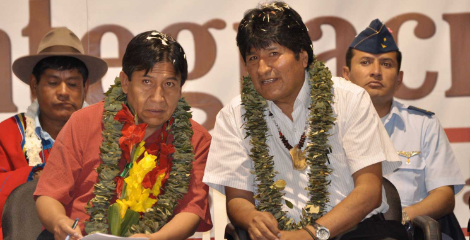
Choquehuanca with Morales when he was Minister of External Affairs. Photo: Communidad Andina.
After a decade as Chancellor of Evo Morales, David Choquehuanca was the leader chosen by the Pacto de
...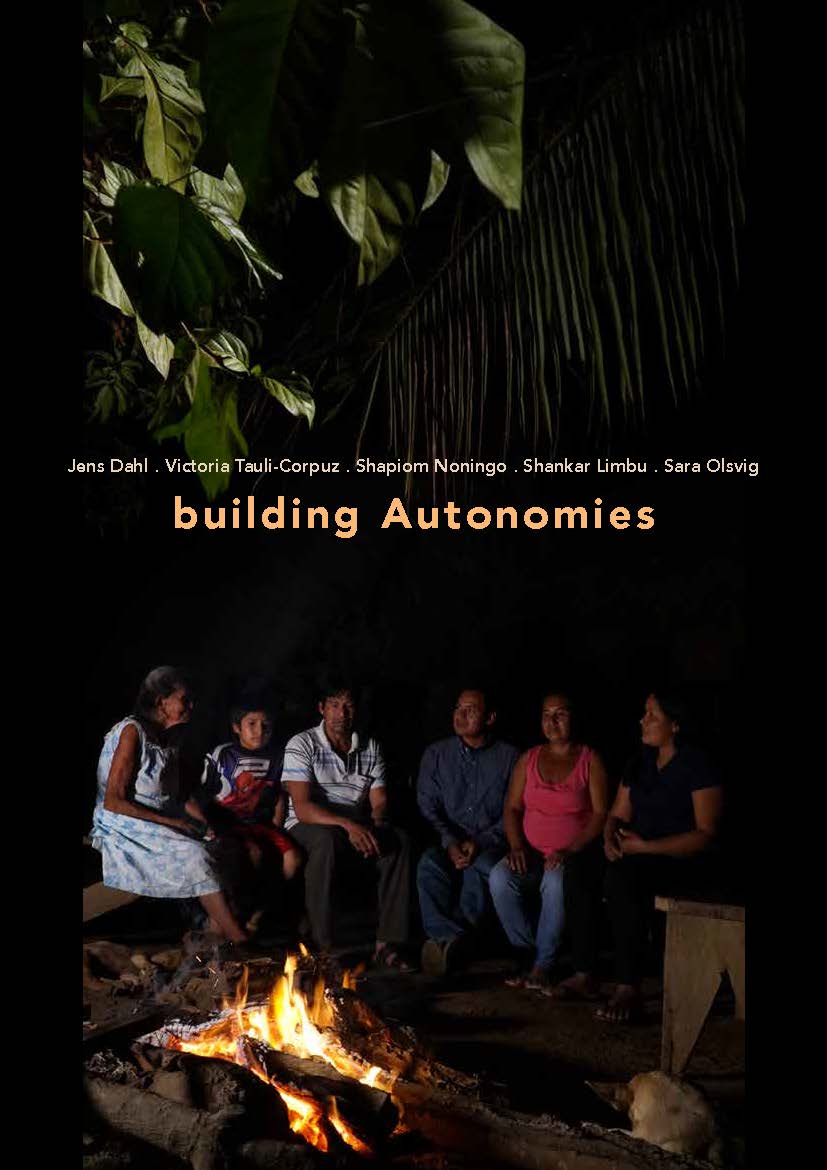
This book forms an essential contribution to the process of legitimising the recognition and exercise of the world’s Indigenous Peoples’ right to self-determination in domestic and international law. It further offers a space for analysis, dialogue and debate aimed at coordinating visions and
...
Constituting just 5% of the world’s population, Indigenous Peoples protect 80% of the planet’s biodiversity.1 Globally, many of the remaining standing forests are on Indigenous lands and territory. At least 24% of global carbon stored above ground in the world’s tropical forests, or
...
The African Commission on Human and Peoples’ Rights (ACHPR) was established in accordance with Article 30 of the African Charter on Human and Peoples’ Rights with a mandate to promote and protect human and peoples’ rights on the continent. It was officially inaugurated on 2 November 1987 and is
...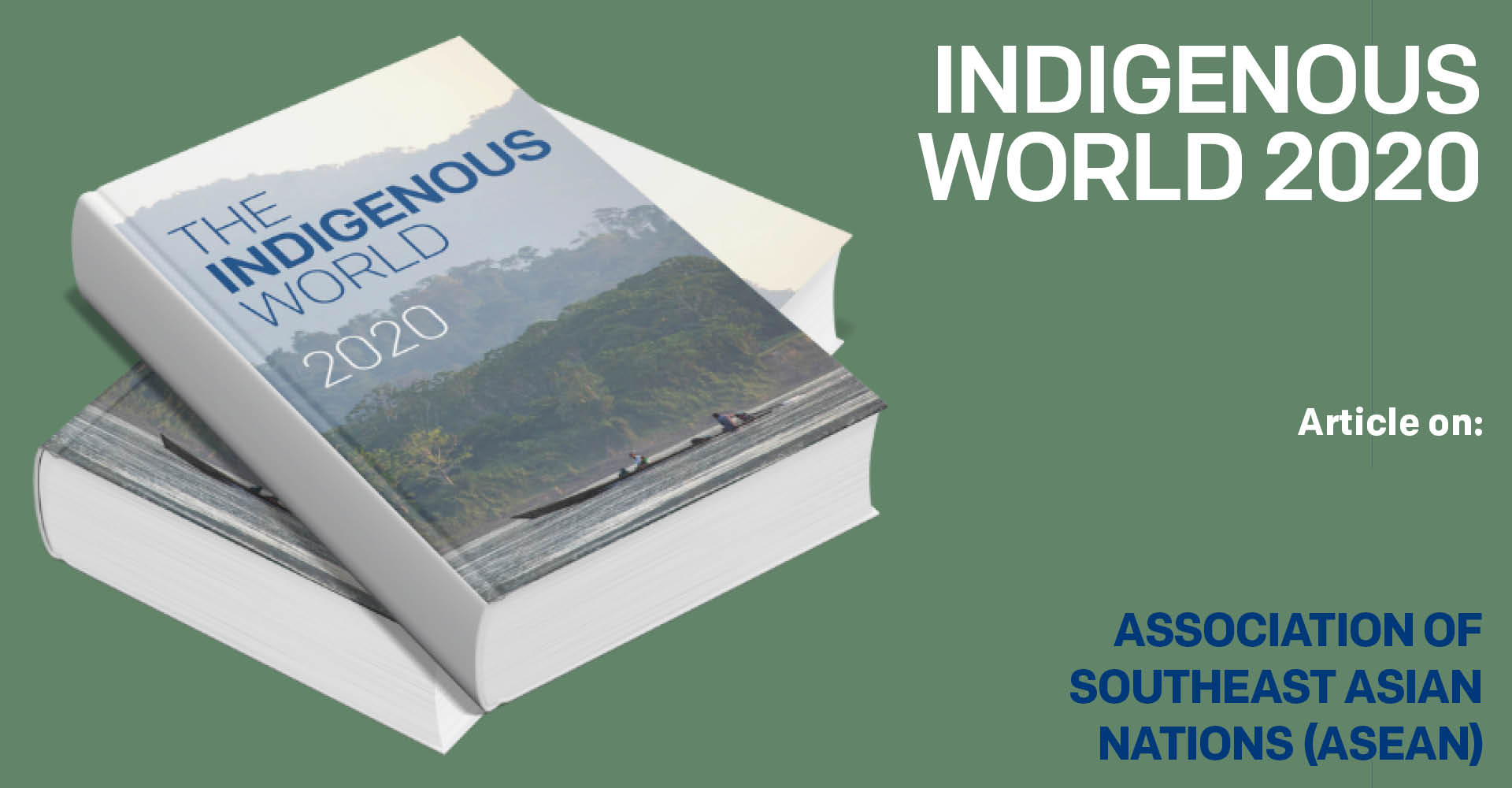
The Association of Southeast Asian Nations (ASEAN) established on 8 August 1967 with the signing of the ASEAN Declaration (Bangkok Declaration) by its founding member states: Indonesia, Malaysia, Philippines, Singapore and Thailand. Brunei, Cambodia, Lao PDR, Vietnam and Myanmar later joined,
...
The European Union (EU) is a political and economic union of 27 Member States established in 1951. Its legislative and executive powers are divided between the EU’s three main institutions: the European Parliament (co-legislative authority - EP), the Council of the European Union
...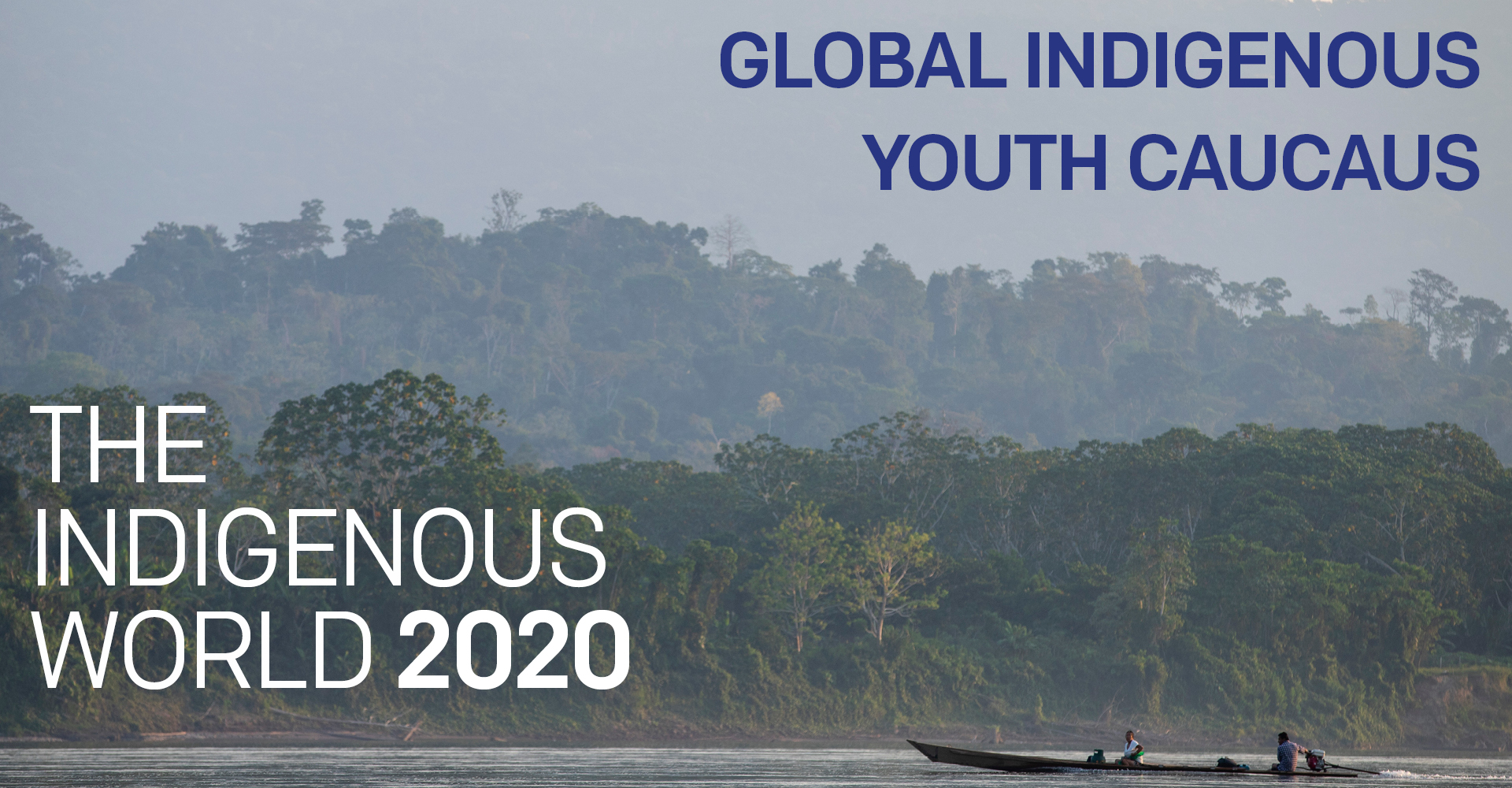
It is estimated that there are 370 million Indigenous persons in the world, approximately 45% of whom are between 15 and 30 years of age. This group of Indigenous Peoples face numerous challenges, including marginalisation, migration and premature maternity. Despite these problems, Indigenous
...
Indigenous Peoples have always been ‘data warriors’. Our ancient traditions recorded and protected information and knowledge through art, carving, song, chants and other practises. Deliberate efforts to expunge these knowledge systems were part and parcel of colonisation, along with
...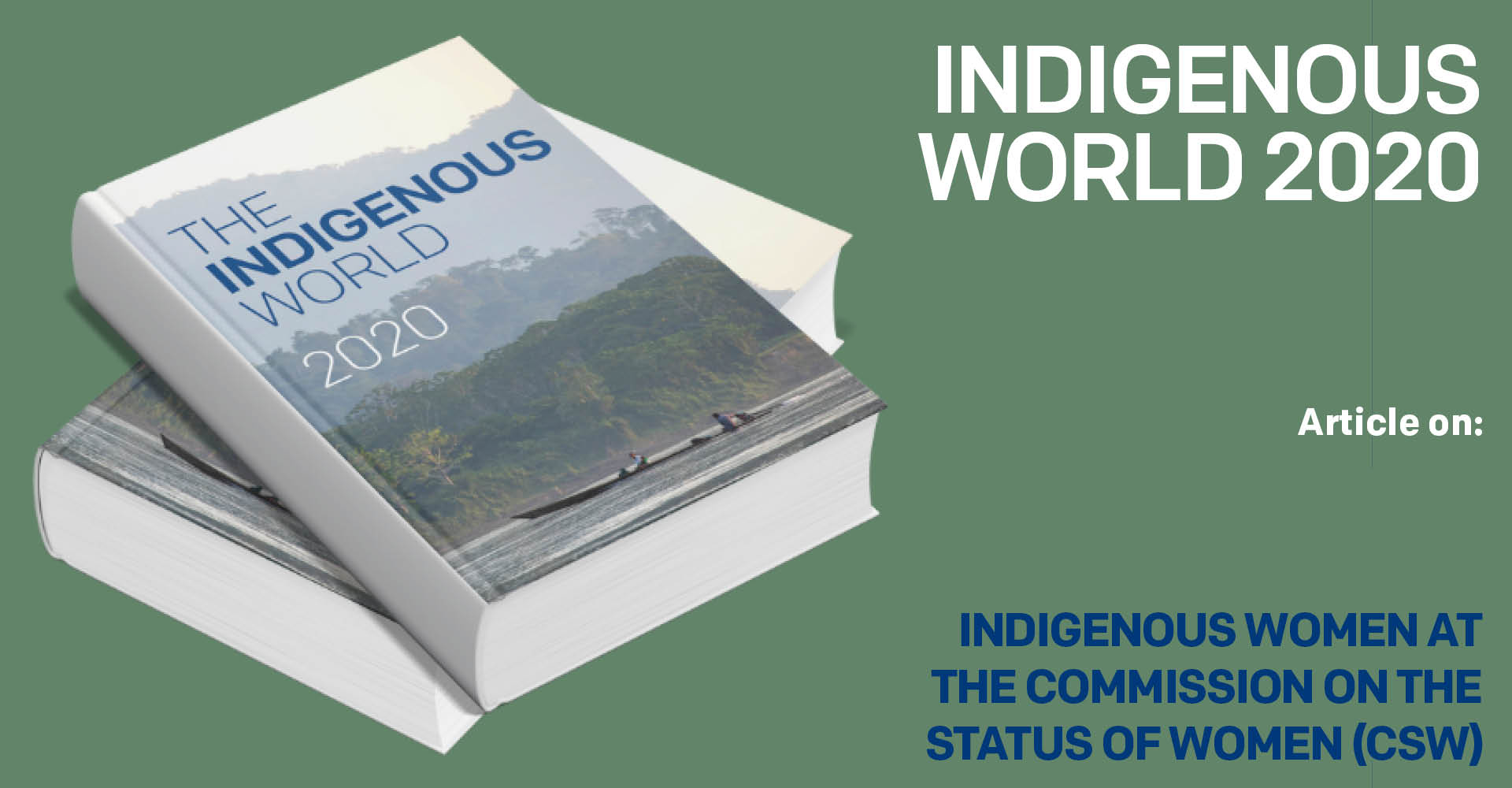
The Commission on the Status of Women (CSW) is the principal global intergovernmental body exclusively dedicated to the promotion of gender equality and empowerment of women. It is a functional commission of the Economic and Social Council (ECOSOC).
The CSW is instrumental in promoting
...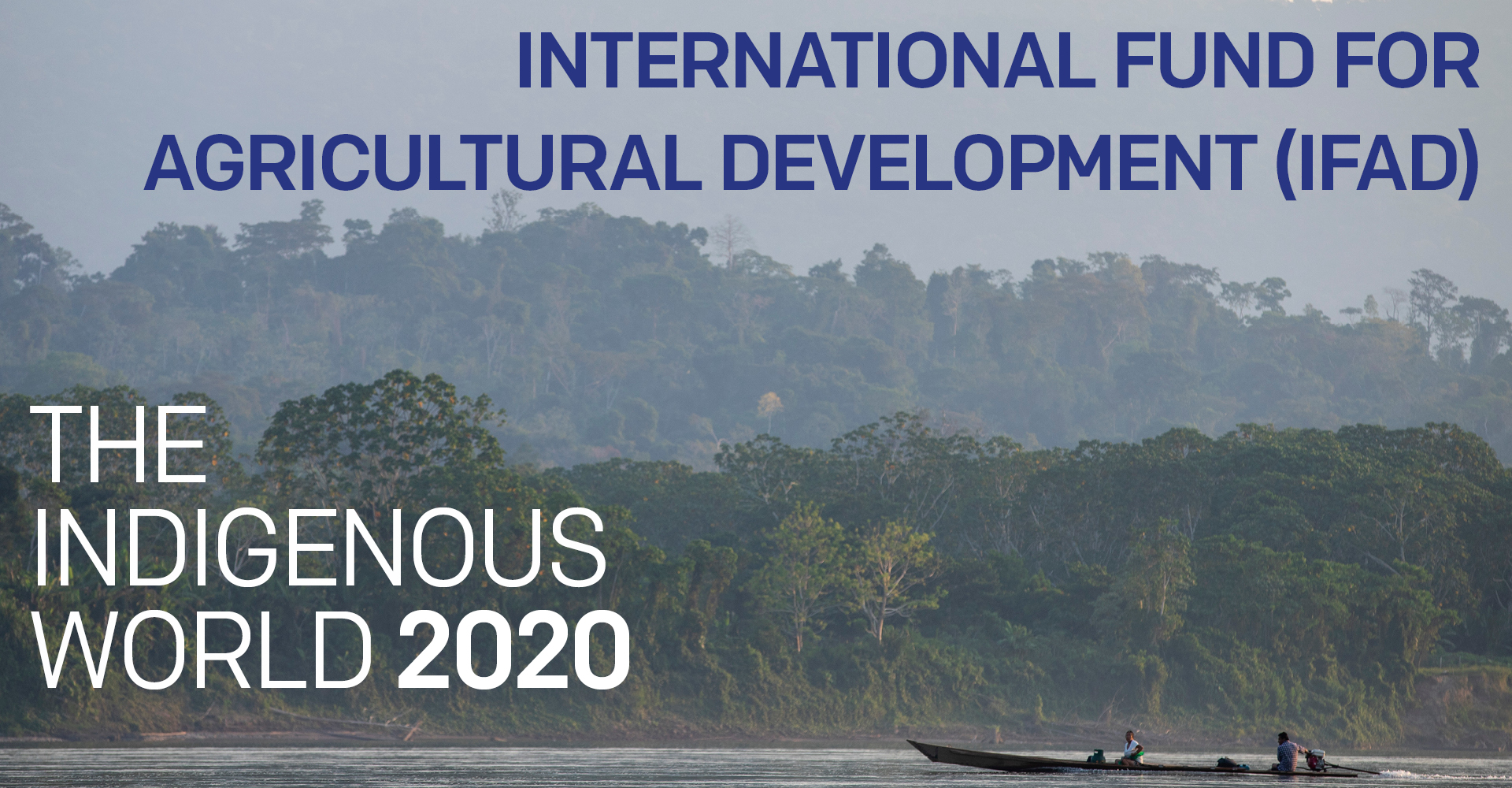
The Indigenous Peoples’ Forum at the International Fund for Agricultural Development (IFAD) constitutes a unique process within the UN system and is a concrete way for IFAD to institutionalise consultation and dialogue with representatives of Indigenous Peoples’ institutions.
The forum
...
The Expert Mechanism on the Rights of Indigenous People’s (EMRIP)[1] is a subsidiary body of the Human Rights Council composed of seven independent members, one from each of the seven indigenous sociocultural regions: Africa; Asia; the Arctic; Central and
...
The Indigenous Navigator is an online portal providing access to a set of tools developed for and by Indigenous Peoples. Through the Indigenous Navigator framework, data is collected that can be used by Indigenous people to advocate for their rights and to systematically monitor the level of
...
The Inter-American Human Rights System (IAHRS) comprises two human rights bodies: the Inter-American Commission on Human Rights (IACHR or the Commission) and the Inter-American Court of Human Rights (IA Court). Both bodies work to promote and protect human rights in the Americas. The IACHR is
...
Since the adoption of the 2030 Agenda for Sustainable Development and the Sustainable Development Goals (SDGs) by the UN General Assembly in September 2015, Indigenous Peoples have been engaging in national, regional and global processes related to the SDGs. The main objective is to promote the
...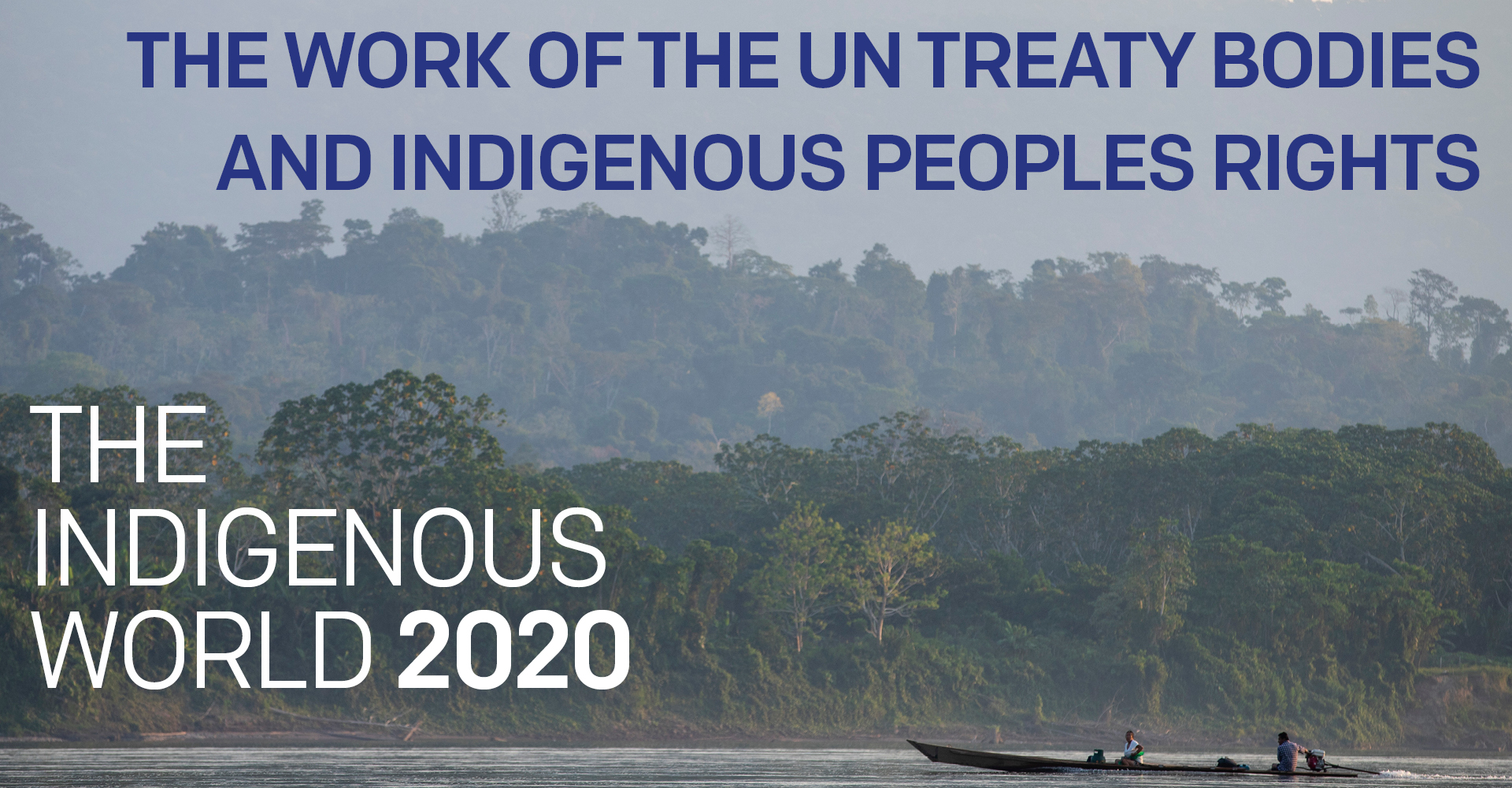
The treaty bodies are the committees of independent experts in charge of monitoring the implementation by state parties of the rights protected in international human rights treaties. There are nine core international human rights treaties that deal with civil and political rights; economic,
...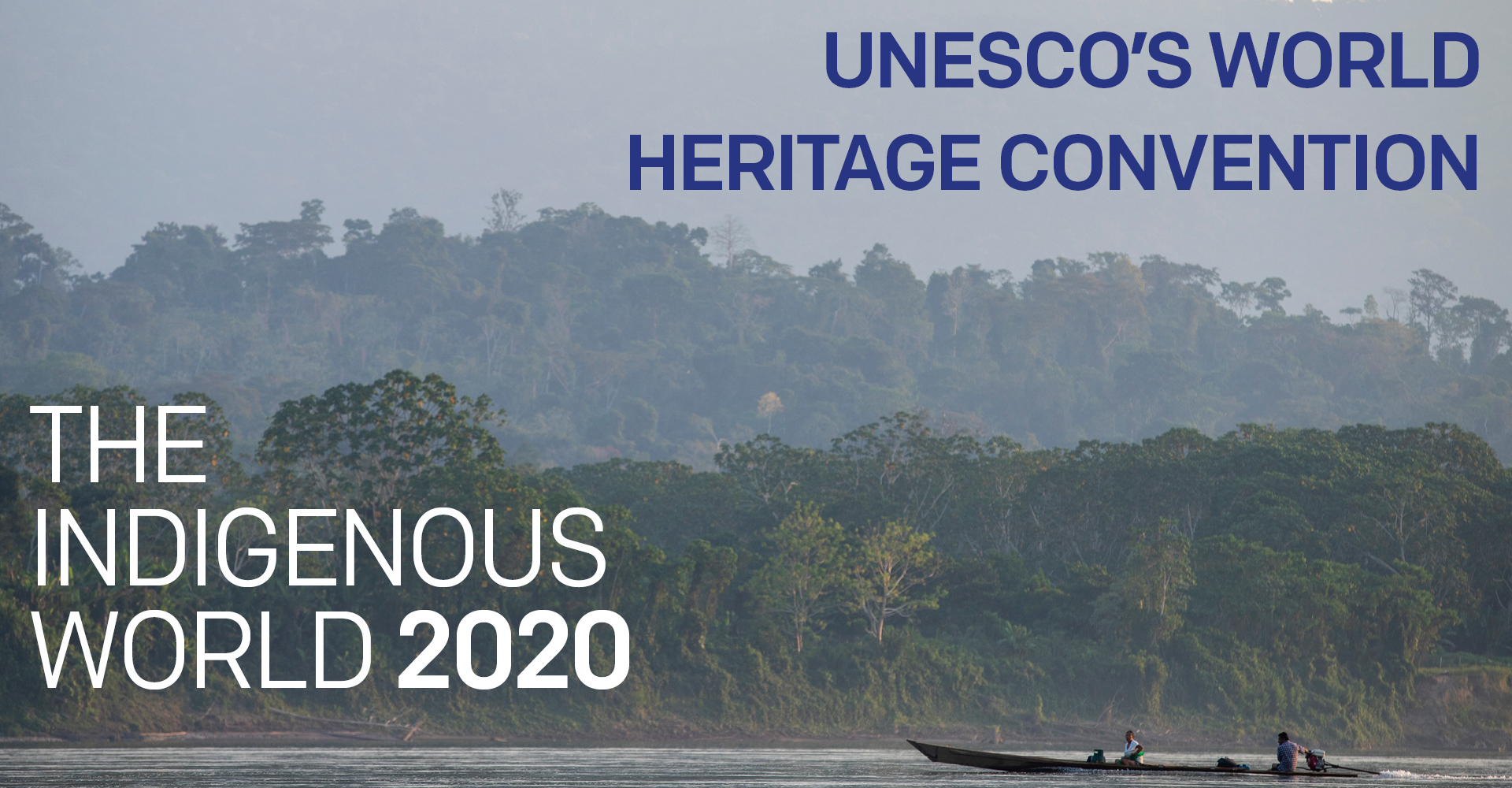
The Convention concerning the Protection of the World Cultural and Natural Heritage (“World Heritage Convention”) was adopted by the United Nations Educational, Scientific and Cultural Organization’s (UNESCO’s) General Conference in 1972. With 193 States Parties, it is one of the most widely
...
The United Nations Framework Convention on Climate Change (UNFCCC) is an international treaty adopted at the Earth Summit in Rio in 1992 to tackle the growing problem of global warming and the related harmful effects of a changing climate. The UNFCCC entered into force on 21 March 1994, and has
...
The United Nations Permanent Forum on Indigenous Issues (Permanent Forum) is an expert body of the United Nations Economic and Social Council (ECOSOC) with the mandate to provide advice on Indigenous issues to the Council and through ECOSOC, to the United Nations agencies, funds and programmes,
...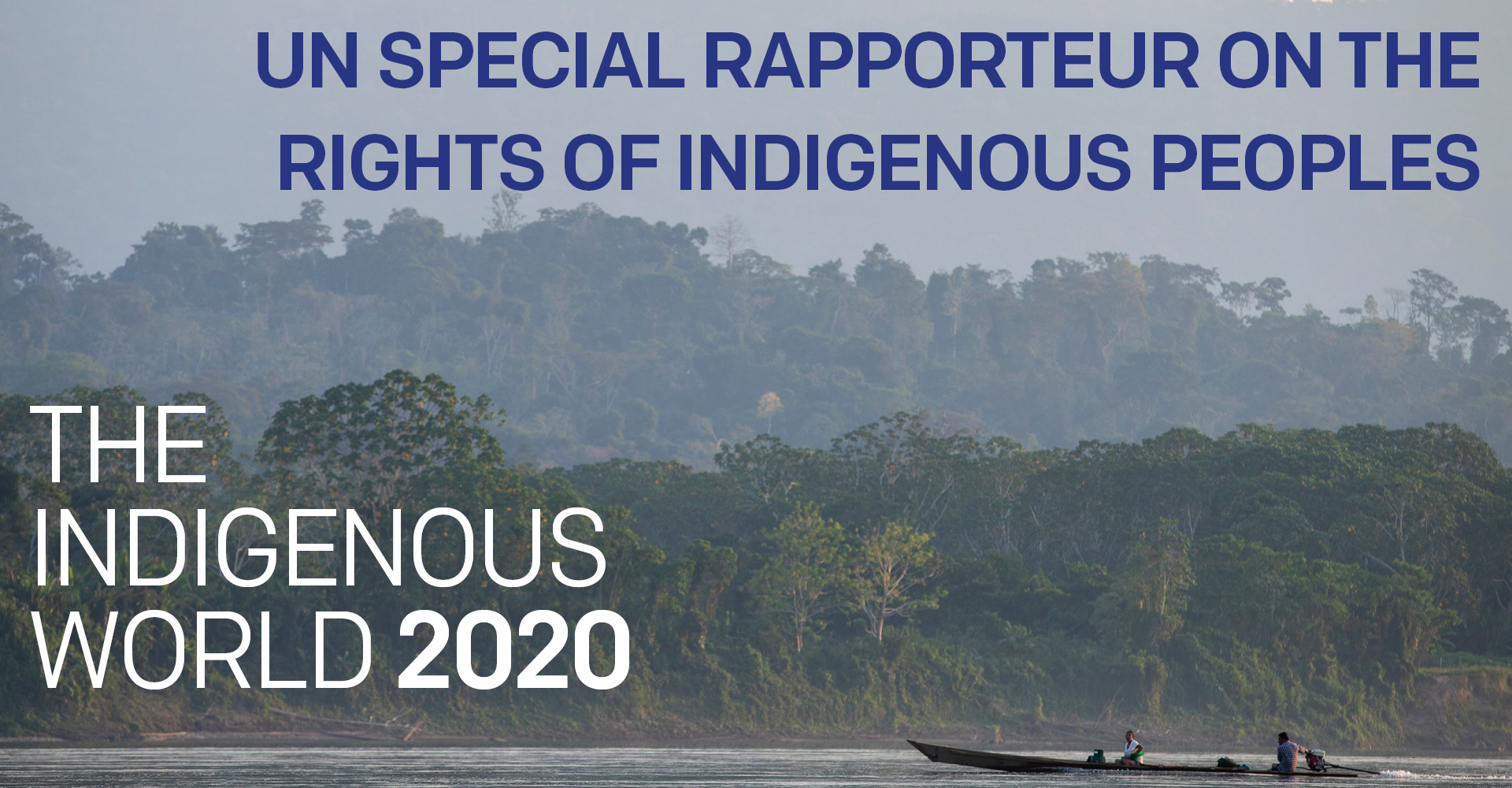
The Special Rapporteur on the rights of Indigenous Peoples is one of the 56 “special procedures” of the United Nations Human Rights Council. The special procedures are independent human rights experts with mandates to report and advise on human rights from a thematic or country-specific
...
Indigenous Peoples have rights over their traditional knowledge (TK), traditional cultural expressions (TCEs) and genetic resources (GRs), including associated intellectual property rights, as recognized in the UN Declaration on the Rights of Indigenous Peoples, Article 31. However, Indigenous
...
The compilation is the unique result of a collaborative effort between Indigenous and non-indigenous activists and scholars who voluntarily document and report on the situation of Indigenous Peoples’ rights. We thank them and celebrate the bonds and sense of community that result from the close
...
On Tuesday night, before COVID-19 shut down most of Denmark, a dozen people gathered in Copenhagen to meet the UN Special Rapporteur on the Rights of Indigenous Peoples, Ms. Victoria Tauli-Corpuz. The meeting, organised by IWGIA and the Greenlandic House, created a space for Greenlanders in
...
On Human Rights Day, the UN Working Group on Business and Human Rights together with the
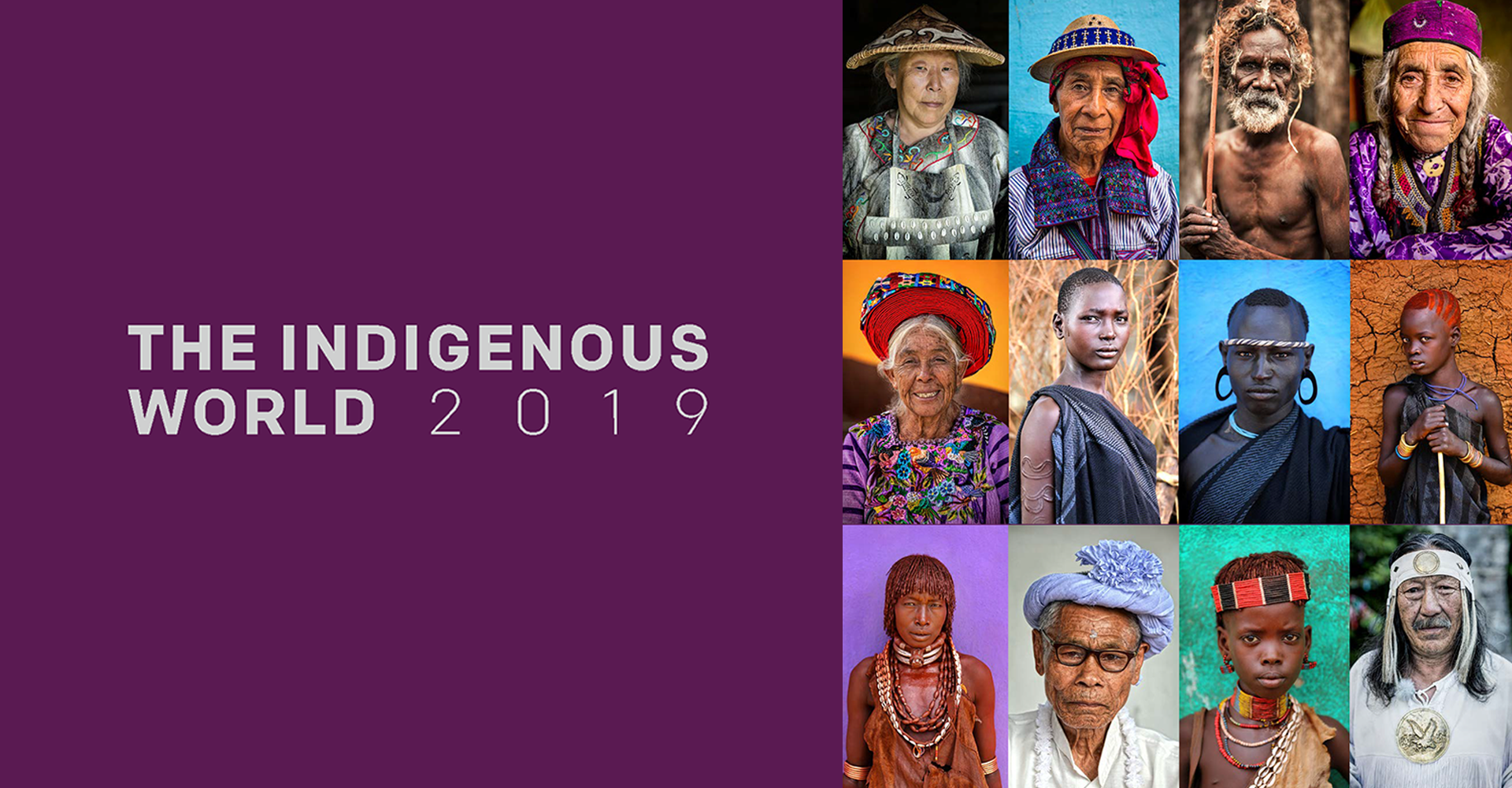
Juana Raymundo from Guatemala was only 25 years old when her life was cut short. Juana was an indigenous rights defender, a nurse and a coordinator at CODECA, a human rights organisation promoting the rights of indigenous farmers - in particular to their lands. She disappeared on the evening of
...
Despite being a small group of only eight people among the more than 1,000 participants at the UN Climate Meeting in Abu Dhabi in June, indigenous peoples were able to have their voices heard and put indigenous peoples’ rights on the agenda.

To create a room for indigenous peoples to discuss and analyse their experiences around autonomy and self-government, the international seminar "Right to Autonomy and Indigenous Self-Government as a manifestation of the Right to Self-Determination of Indigenous Peoples" was held on March 11, 12
...
The African Commission on Human and Peoples’ Rights (the ACHPR) was established in accordance with Article 30 of the African Charter on Human and Peoples’ Rights with a mandate to promote and protect human and peoples’ rights on the continent. It was officially inaugurated on 2nd of
...
The Association of Southeast Asian Nations (ASEAN) was established on 8 August 1967 with the signing of the ASEAN Declaration (Bangkok Declaration) by its founding member states: Indonesia, Malaysia, Philippines, Singapore and Thailand. Brunei, Cambodia, Lao PDR, Vietnam and Myanmar later
...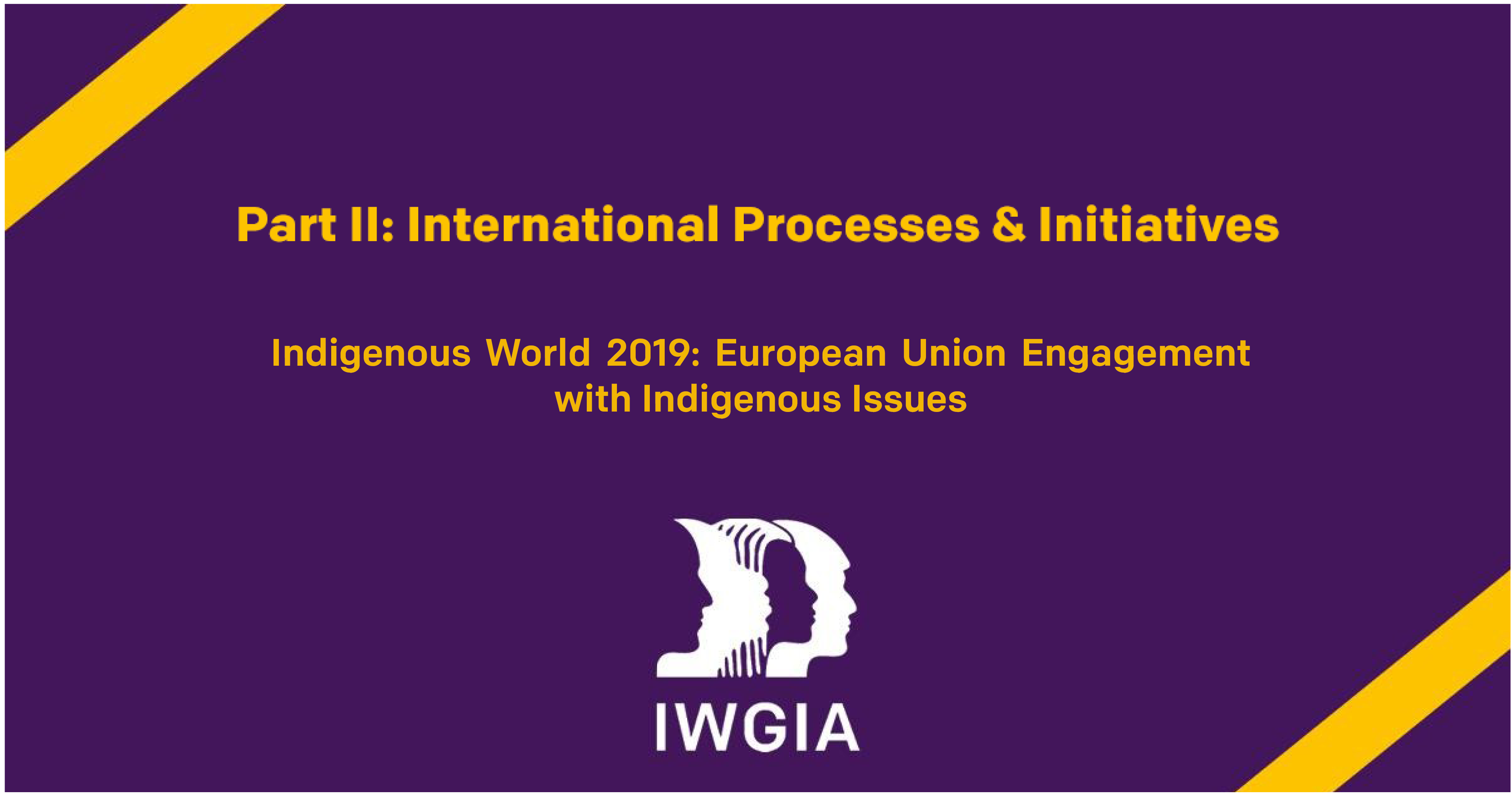
The European Union (EU) is a political and economic union of 28 Member States established in 1951. Its legislative and executive powers are divided between the EU’s three main institutions: the European Parliament (co-legislative authority - EP), the Council of the European Union
...IWGIA - International Work Group for Indigenous Affairs - is a global human rights organisation dedicated to promoting and defending Indigenous Peoples’ rights. Read more.
For media inquiries click here
IWGIA's global report, the Indigenous World, provides an update of the current situation for Indigenous Peoples worldwide. Read The Indigenous World.
Prinsessegade 29 B, 3rd floor
DK 1422 Copenhagen
Denmark
Phone: (+45) 53 73 28 30
E-mail: iwgia@iwgia.org
CVR: 81294410
Report possible misconduct, fraud, or corruption
| |
|
|